Ever found yourself at a loss for words while capturing that perfect sunrise on your latest adventure? Or that feeling when you discover a hidden gem of a restaurant in a busy city alley? What if I told you, the Japanese language has the exact words for those emotions and experiences? There are so many beautiful Japanese words with a lot of meaning behind them.
From the magical moment of sunlight peeking through the leaves, encapsulated by the word Komorebi, to the fleeting beauty of everything around us, summed up in Mono no aware. I will share some of the most beautiful Japanese words that don’t quite have a direct translation in English.
These aren’t your textbook vocabulary words—oh no, they’re far more special. They’re words that weave stories of Japan’s unique culture, the bond with nature, and the more profound understanding of human emotions. Think of them as your secret keys, unlocking parts of Japan and its way of life that aren’t always visible to the naked eye.
Grab a cup of matcha and let’s go on a Japanese language ride, exploring the uncharted territories of ‘Yūgen’, the profound sense of the beauty of the universe, and much more. Are you looking for more commonly used sentences and expressions? I also have a dedicated post to Japanese phrases for tourists to help you out as well.
Table of Contents
- Kogarashi (木枯らし)
- Komorebi (木漏れ日)
- Mono no aware (物の哀れ)
- Yūgen (幽玄)
- Wabi-Sabi (侘寂)
- Ikigai (生き甲斐)
- Natsukashii (懐かしい)
- Kintsugi (金継ぎ)
- Shibui (渋い)
- Hanami (花見)
- Tsundoku (積ん読)
- Kenzoku (眷族)
- Itadakimasu (頂きます)
- Karōshi (過労死)
- Shoganai (しょうがない)
- Kuidaore (食い倒れ)
- Satori (悟り)
- Amae (甘え)
- Kotodama (言霊)
- Furusato (ふるさと)
- Omoiyari (思いやり)
- Shinrin-yoku (森林浴)
- Setsunai (せつない)
- Yamato-damashii (大和魂)
- Ichi-go ichi-e (一期一会)
- Genki (元気)
- Kizuna (絆)
- Ganbatte (頑張って)
- Osusowake (お裾分け)
- Yutori (ゆとり)
Kogarashi (木枯らし)
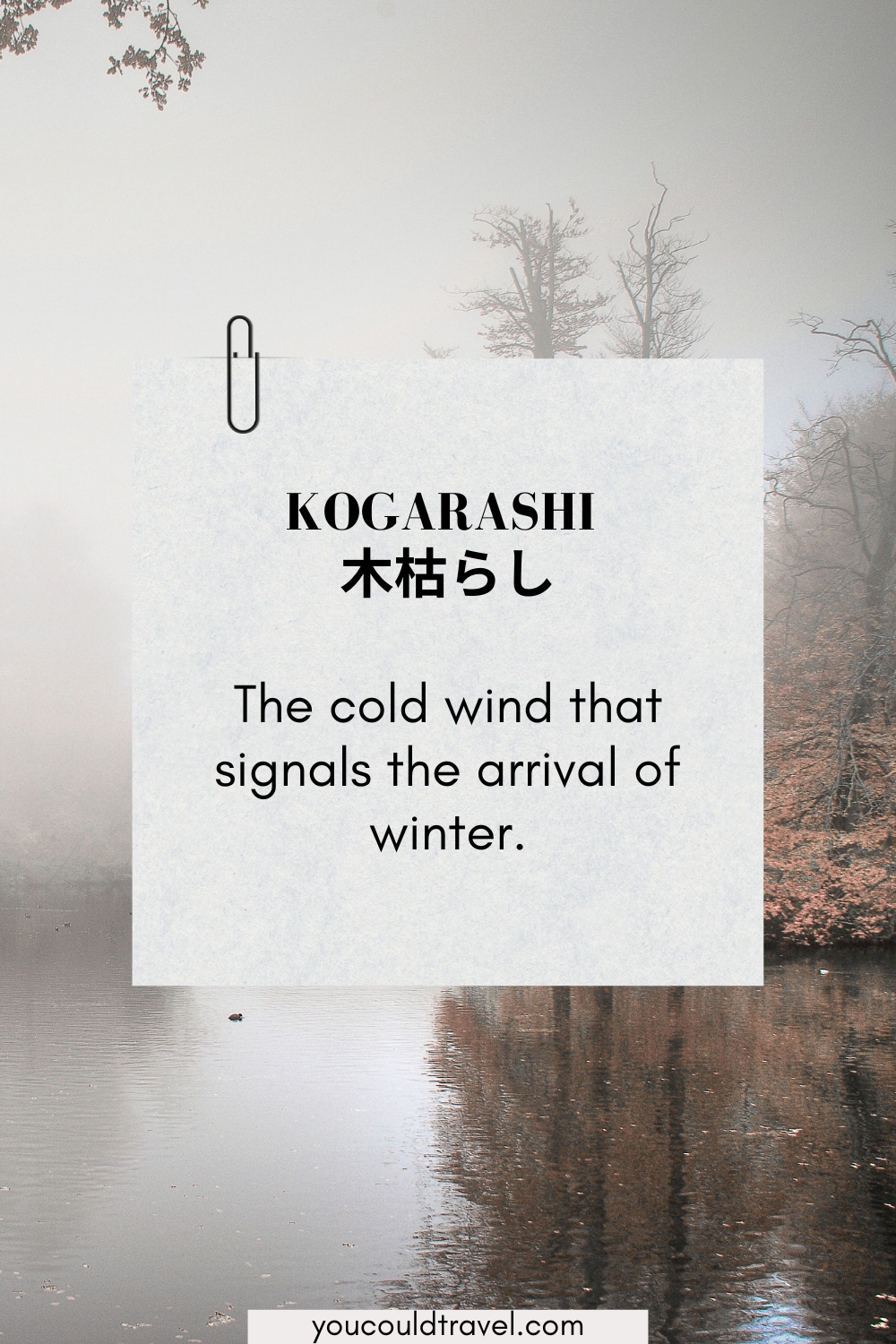
Kogarashi is a beautiful Japanese word that directly translates to tree-withering wind. It is used to describe the kind of sharp, cold wind that tells you winter has arrived.
Derived from the characters for tree (木) and wither (枯らし), Kogarashi makes us imagine the changing seasons. It’s the chilly gust that rustles the remaining leaves on the trees, leading them to wither and fall. It heralds the onset of the bare, quiet beauty of winter.
In Japanese poetry and literature, Kogarashi is often used to convey a sense of loneliness or desolation that can come with the arrival of the cold season. As you walk outside on a late autumn day, feeling that first bite of winter in the wind, now you have the perfect word to capture the experience: Kogarashi.
Komorebi (木漏れ日)
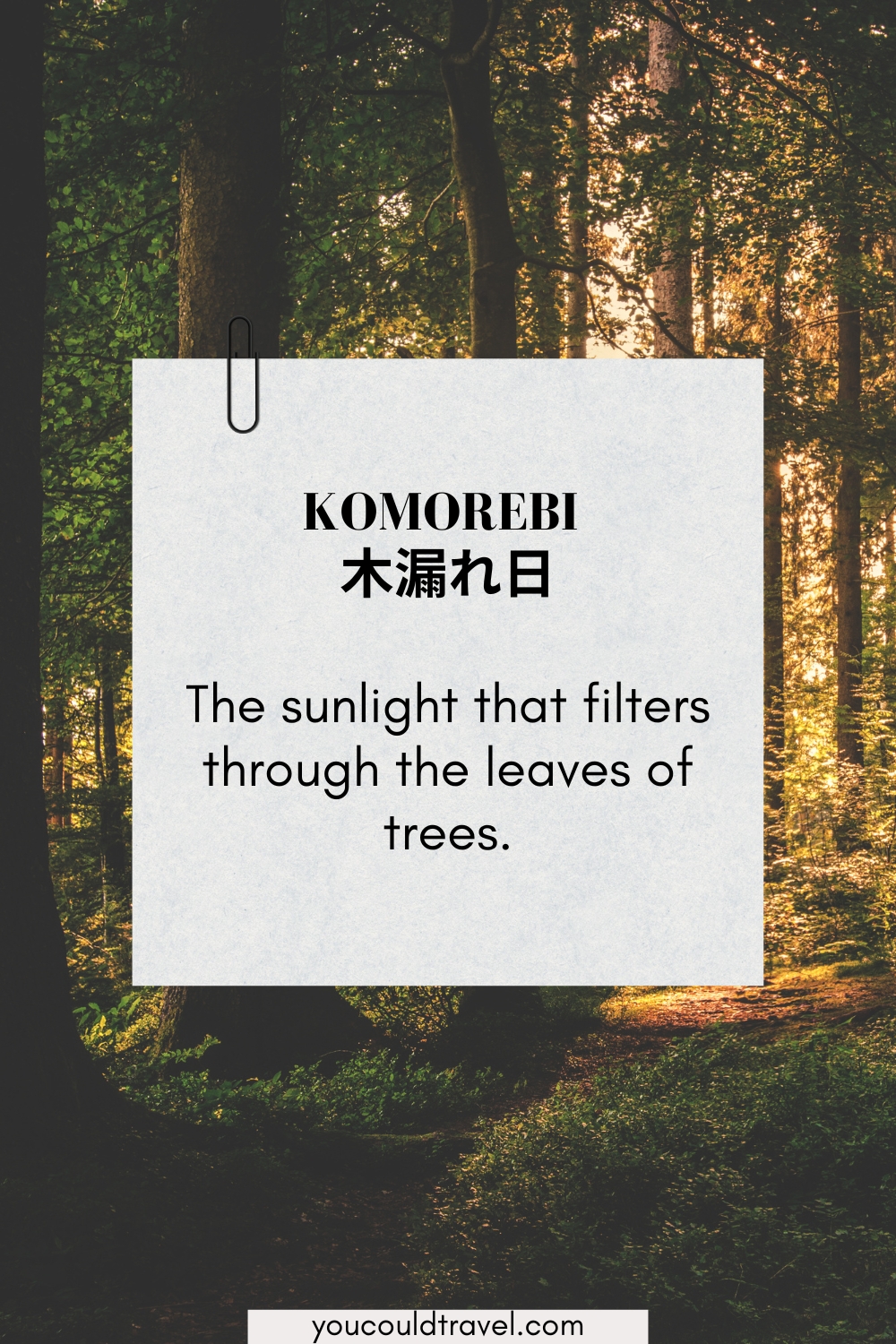
Komorebi describes the beautiful, dappled sunlight that filters through the leaves of trees. The word Komorebi is a compound of three kanji characters. The first, ko (木), means tree or trees; the second, more (漏れ), is the verb form of to leak; and the third, bi (日), represents sun or light. So, you can think of Komorebi as the sunlight that leaks through the leaves of trees.
Komorebi is a common theme in Japanese art, anime, and poetry because it encapsulates a very specific natural phenomenon that evokes feelings of tranquillity, hope, and appreciation of nature’s beauty. Next time you’re wandering in a forest or park, and you see the sunlight peeking through the canopy above, remember to pause and appreciate the Komorebi.
Mono no aware (物の哀れ)
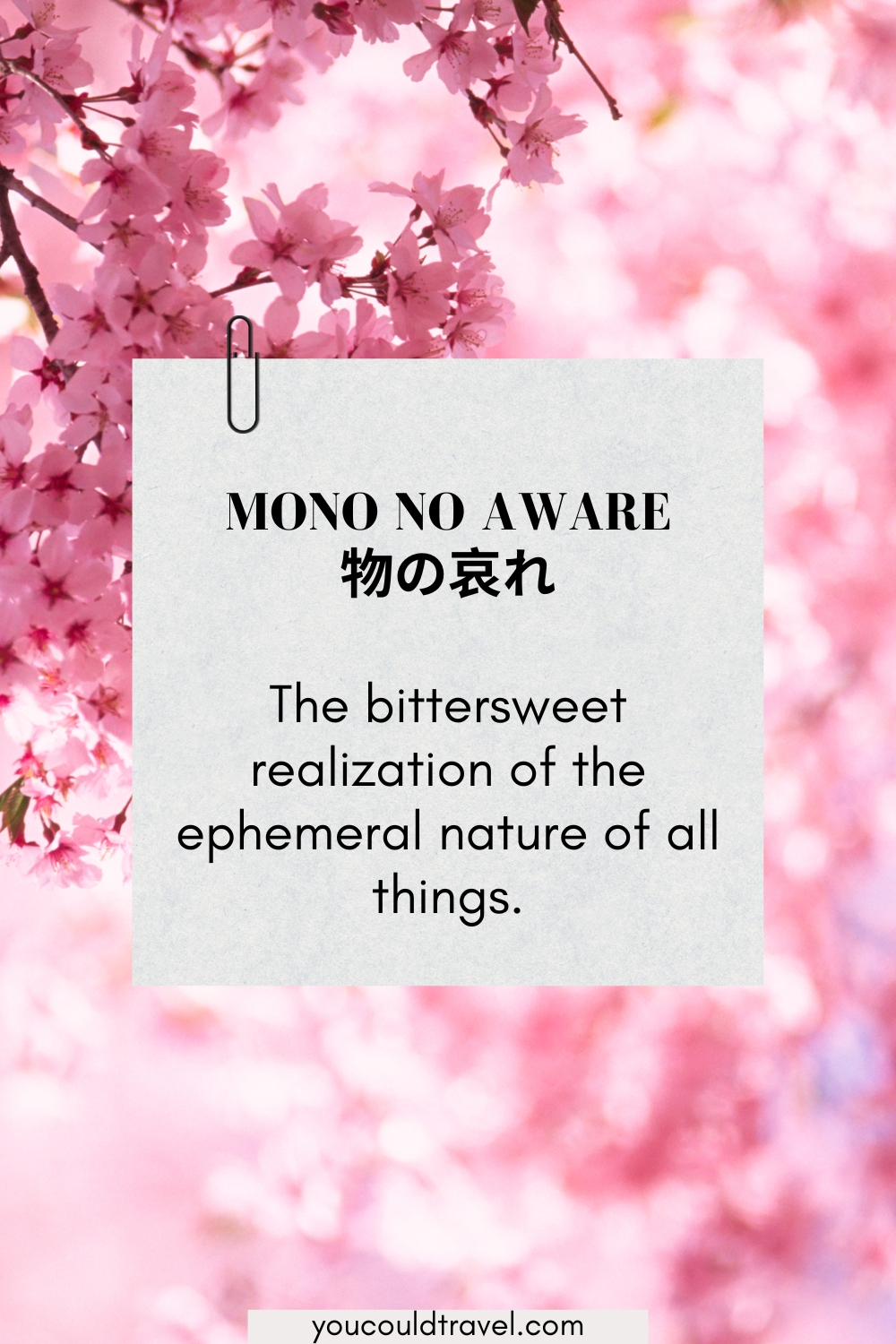
Mono no aware is a key concept in Japanese aesthetics that doesn’t have a direct translation in English. It is often translated as the pathos of things, an empathy toward things, or a sensitivity to the ephemeral.
The term is derived from mono (物), which means things, and aware (哀れ), which was originally an expression of sorrow or grief in ancient Japanese.
Mono no aware refers to the poignant awareness of the impermanence of all things, and the gentle sadness and wistfulness at their passing. It’s the bittersweet feeling you get when you witness the beauty of a cherry blossom in full bloom, knowing that it’s a fleeting spectacle that will soon fade away.
This concept is deeply intertwined with the Buddhist notion of impermanence. Rather than viewing the passing of time as a source of despair, mono no aware teaches us to appreciate the beauty of each moment, no matter how fleeting it may be.
Yūgen (幽玄)
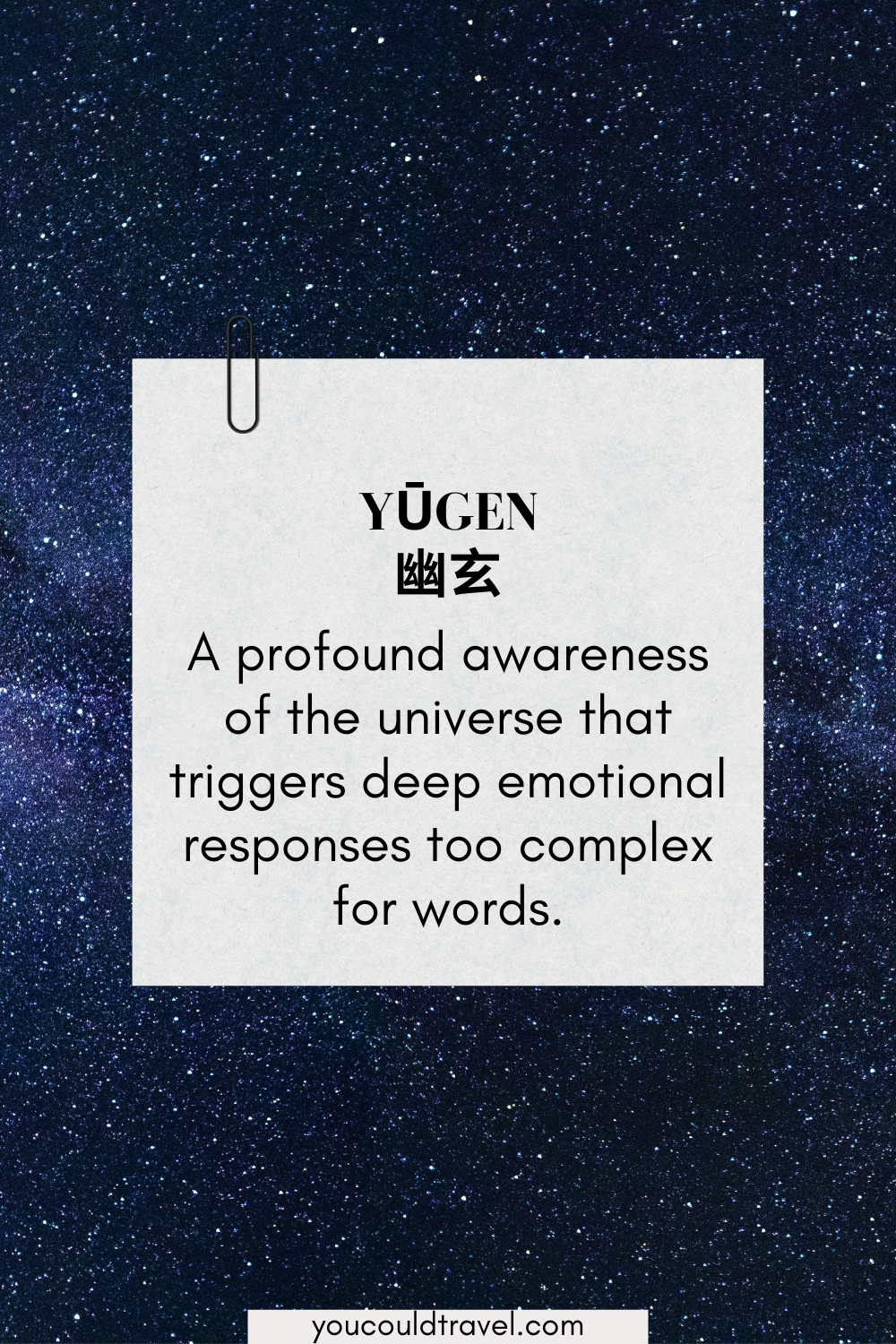
Yūgen is a concept in traditional Japanese aesthetics related to the profound, mysterious sense of the beauty of the universe and the sad beauty of human suffering. To properly understand this beautiful Japanese word, one must go through deep introspection and the cultivation of a refined sensitivity.
The term itself, made up of the kanji characters for ghostly (幽) and dark (玄), hints at the mysterious, ineffable quality it seeks to express. Yūgen often describes that which lies beyond what can be said, but it’s not about secrets, nor darkness. Instead, it’s about a depth that lies beneath the surface of the physical world.
Wabi-Sabi (侘寂)
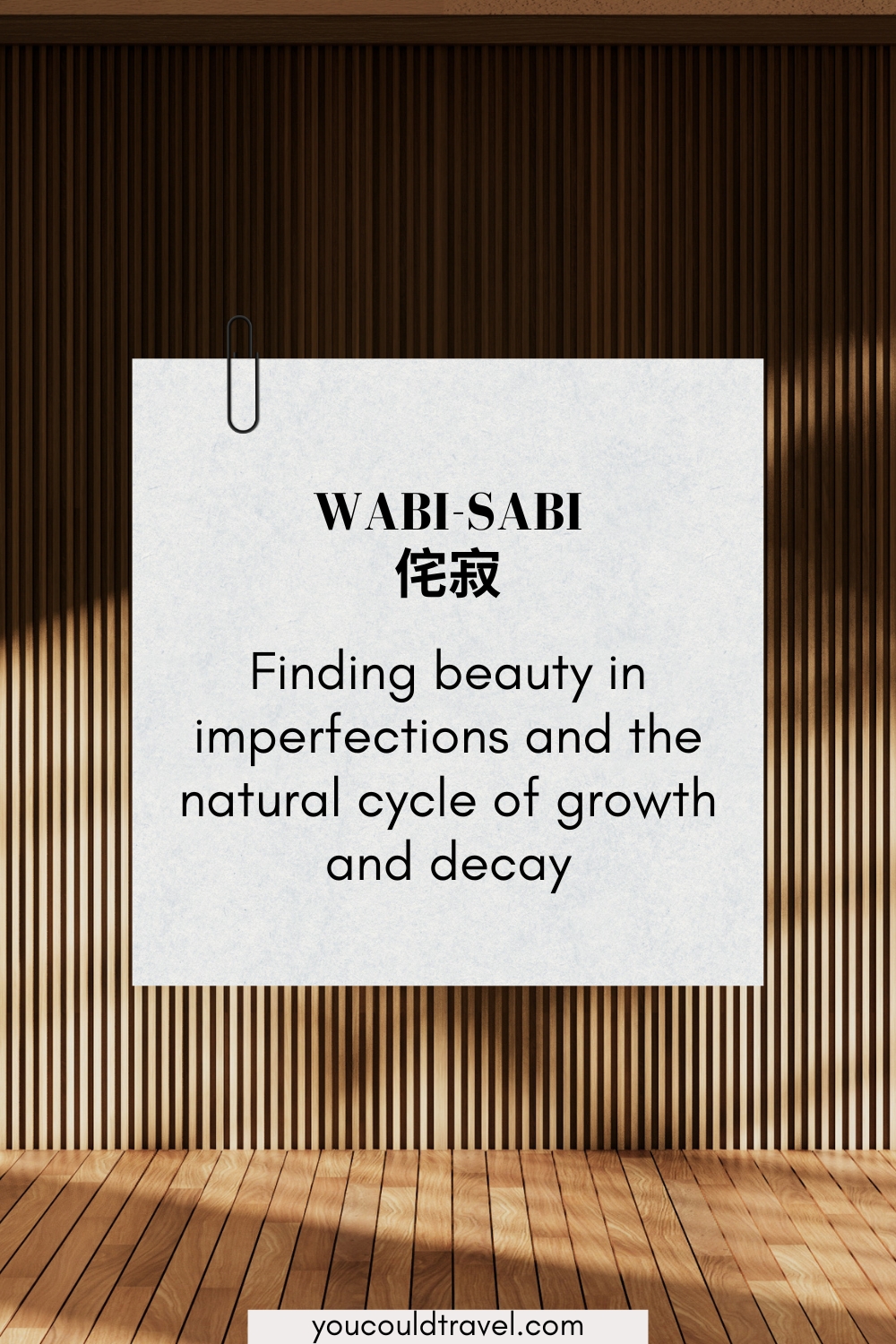
Wabi-Sabi is a concept in Japanese aesthetics, which embraces the beauty in imperfection, impermanence, and incompleteness. It is deeply rooted in Zen Buddhism.
Wabi connotes rustic simplicity, understated elegance, and quietness, while Sabi denotes beauty or serenity that comes with age, when the life of the object and its impermanence are evidenced in its patina and wear. This Japanese word encourages us to appreciate the beauty of ageing, decay and imperfection and find joy in the natural cycle of life.
Ikigai (生き甲斐)
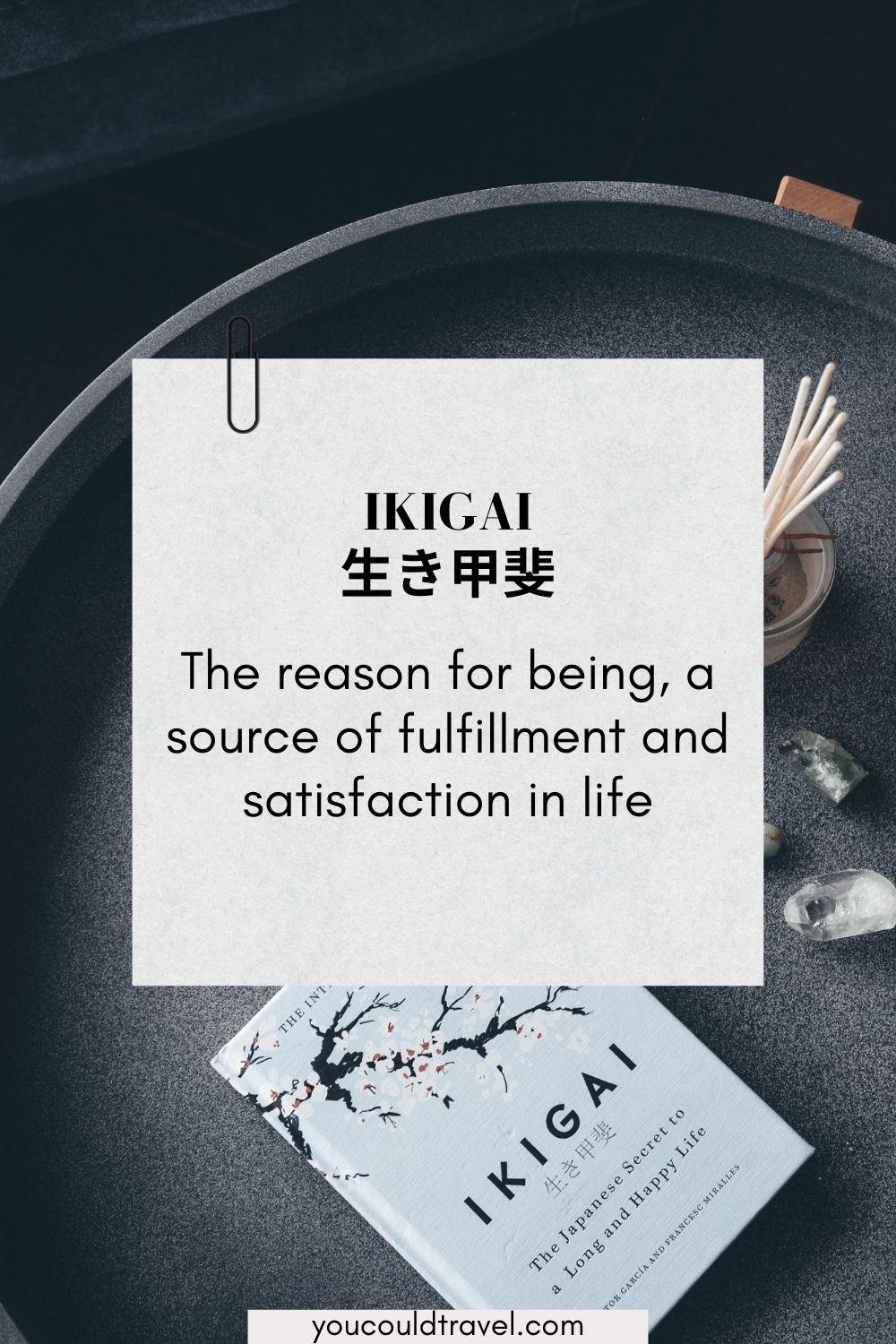
Ikigai is the combination of the words iki (生き), meaning life, and gai (甲斐), which denotes value or worth. Together, Ikigai is often translated as reason for being or reason to wake up in the morning.
And let’s face it, we all need a bit of ikigai every single day, right? Ikigai is the intersection of what you love, what you are good at, what the world requires, and what you can be paid for. It basically sounds like everyone’s dream job and ideal reason for being.
Ikigai is a concept that encourages us to pursue a life of balance, satisfaction, and meaning. It does not necessarily tie to financial wealth, but is more about finding joy and purpose in everyday activities.
Natsukashii (懐かしい)
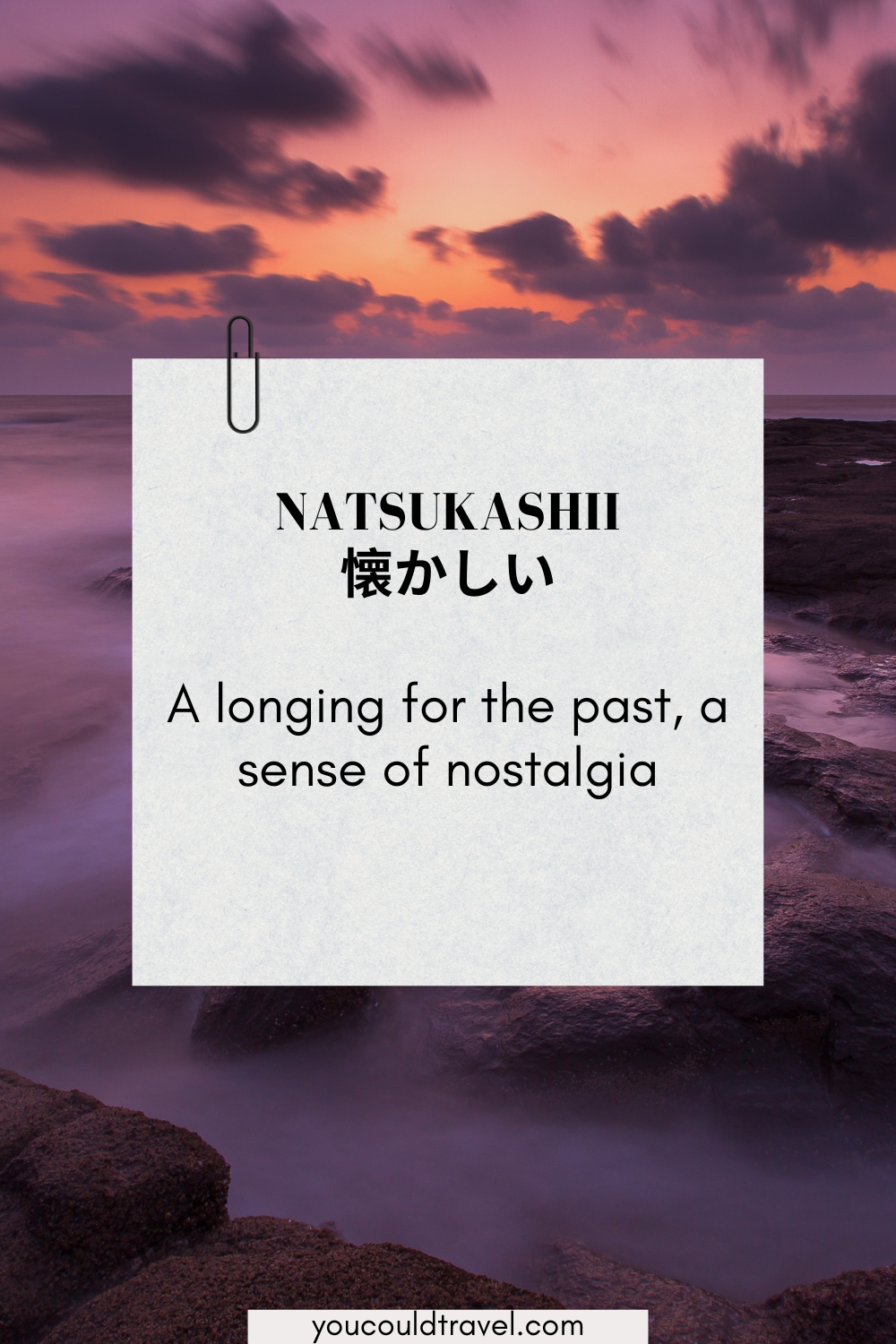
Natsukashii, often translated as nostalgic, refers to a warm, fond memory that brings a smile to your face. The emotion of Natsukashii is not the bittersweet, sometimes painful, nostalgia we regularly associate with the term in English. It’s a much more positive and pleasant feeling, one that leaves you with a sense of longing. It’s that happy sigh you let out when you stumble upon an old photograph, a forgotten song, or revisit a place filled with happy memories.
Kintsugi (金継ぎ)
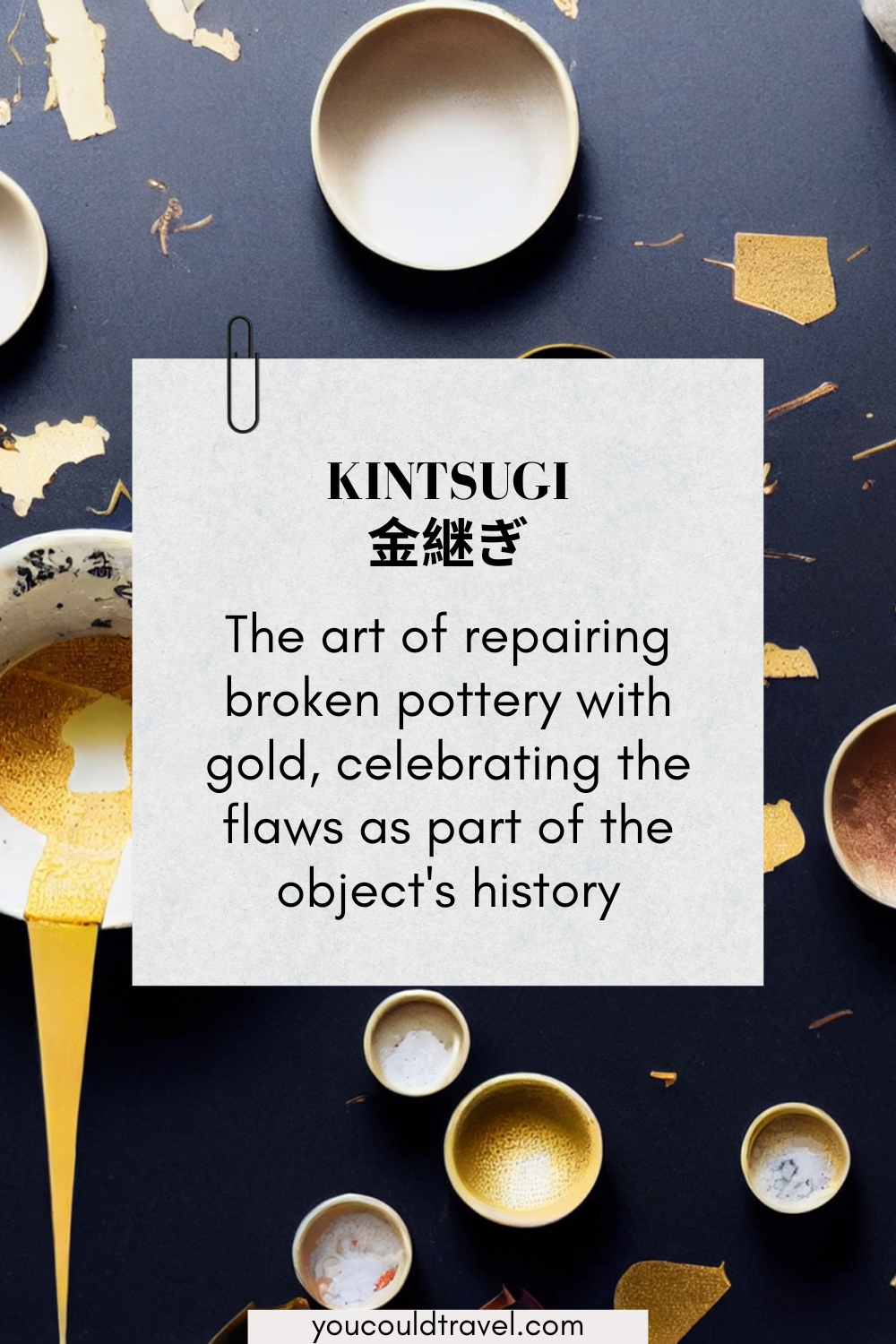
Kintsugi, which translates to golden joinery or golden repair, is a traditional Japanese art form that highlights and enhances the breaks and repairs of a broken pottery piece, instead of hiding them. The method involves using a lacquer mixed with gold, silver, or platinum to mend the broken pieces together. This philosophy treats breakage and repair as part of the history of an object, rather than something to disguise or be ashamed of. It conveys a metaphor for life, where hardships, failures, and scars are not hidden but are embraced as signs of strength, resilience, and beauty.
Shibui (渋い)
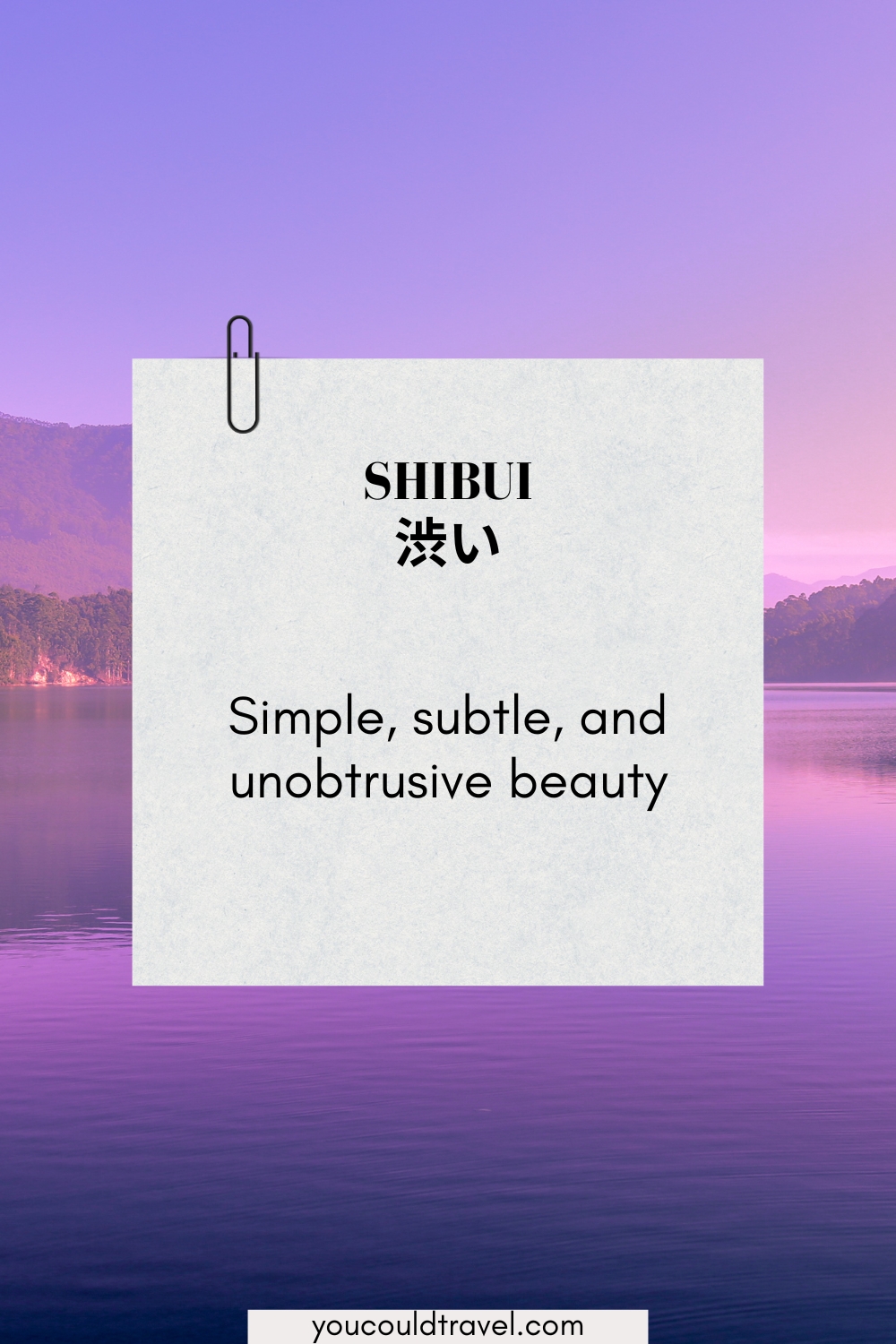
Shibui is a Japanese word used to describe a particular aesthetic of simple, subtle, and unobtrusive beauty.
This concept prefers the understated, favouring subdued refinement over flamboyant display. It can be used to denote the beauty of aged, faded items or the calm, soothing experience of simplicity. Shibui implies an elegance that quietly draws attention without any efforts to demand it.
Hanami (花見)
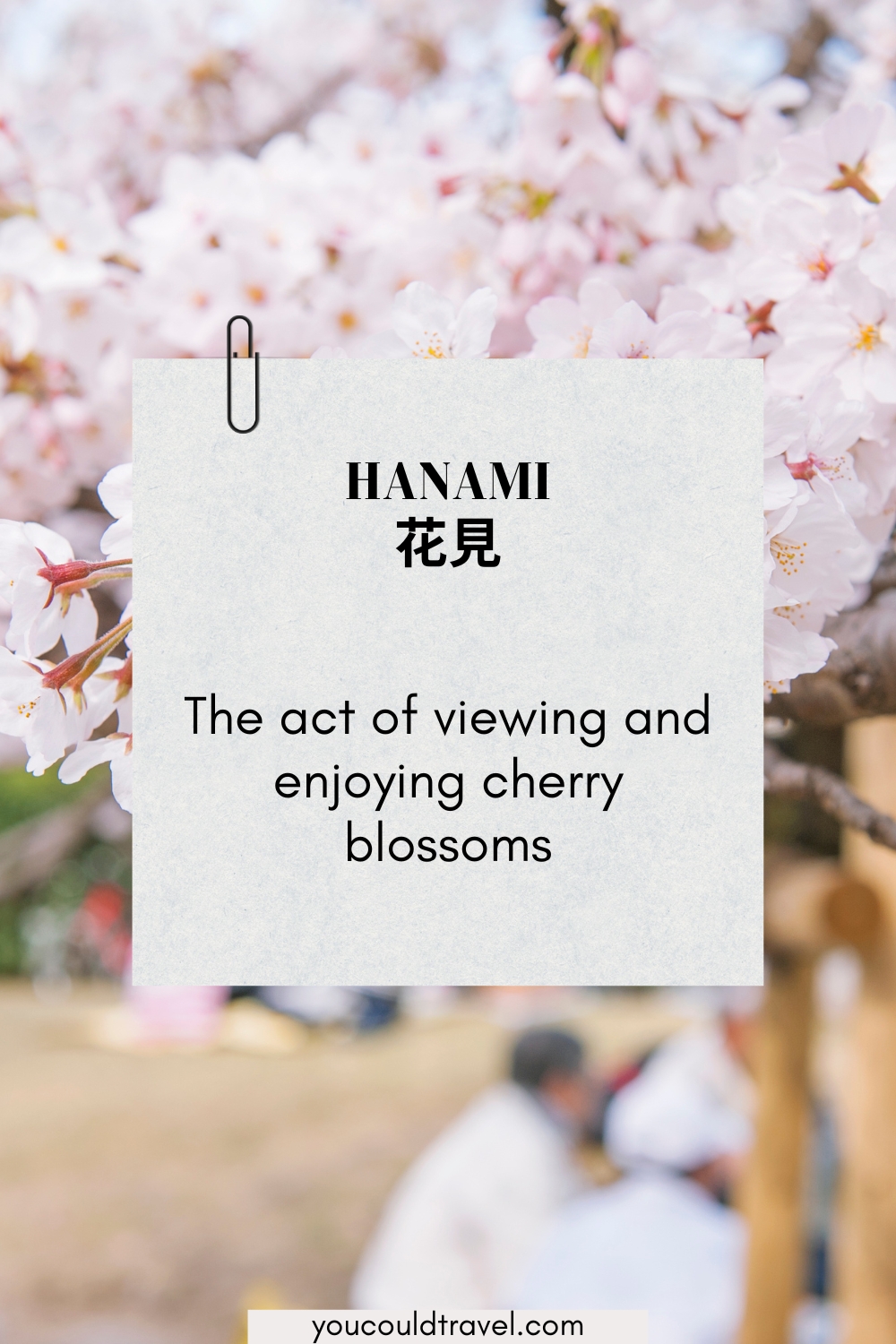
Hanami, literally translated as flower viewing, is the traditional Japanese custom of enjoying the beauty of cherry blossoms (sakura) or plum blossoms (ume) during springtime. This centuries-old practice involves picnicking under a blooming sakura or ume tree, celebrating the fleeting beauty of these flowers, which is seen as a metaphor for the transient nature of life.
The custom is seen as a time for friends and family to gather, enjoy food and drink, and appreciate the beauty of the blossoms. It’s a highlight of the year in Japan and a symbol of the beauty and impermanence of life.
Tsundoku (積ん読)
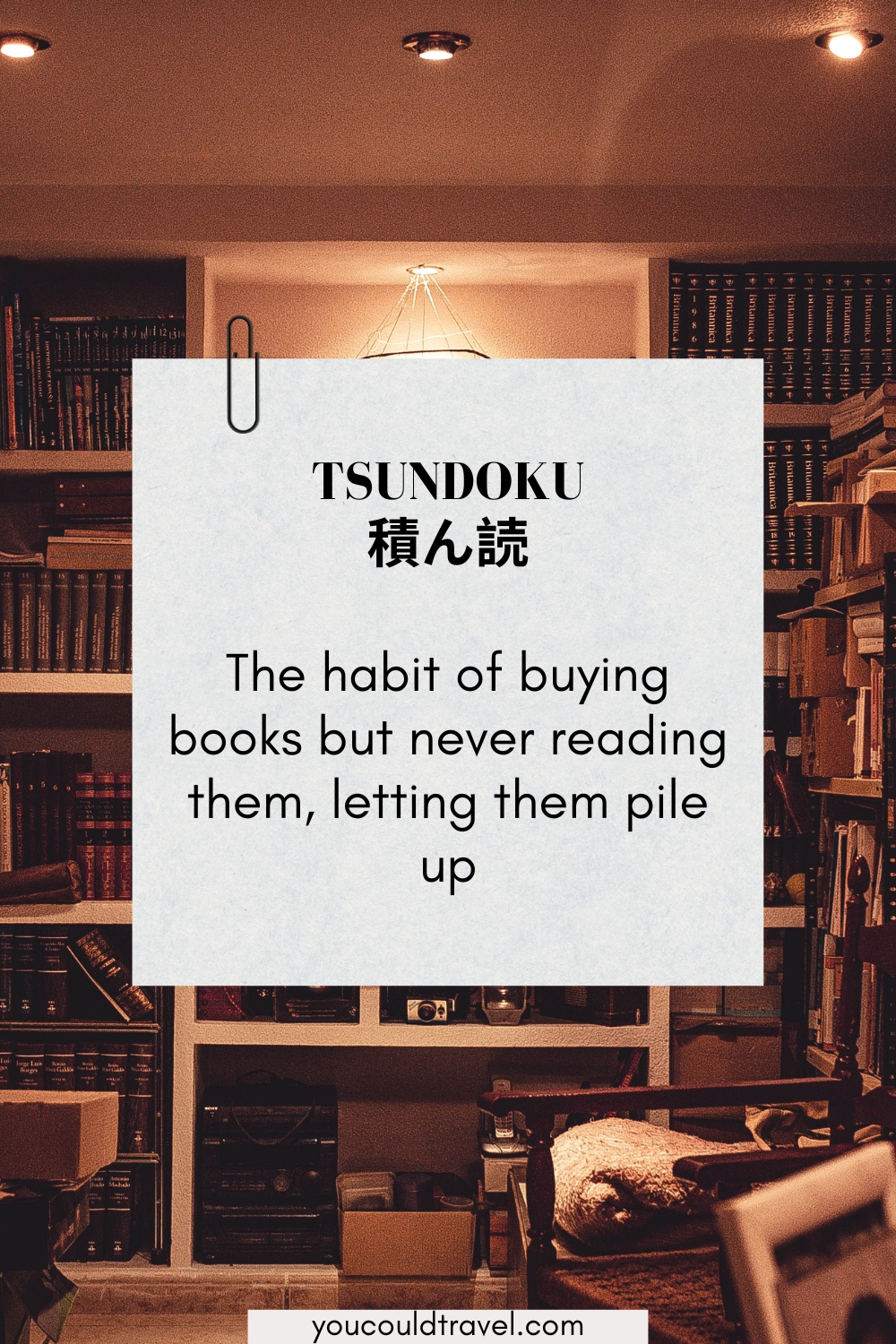
Tsundoku is a unique Japanese word for the habit of buying books, letting them pile up, and never reading them. Well, this does sound like me, and now I have a word for it!
This word is a playful blend of several terms: tsunde means to stack things; oku means to leave for a while; and doku is derived from dokusho that means reading books.
But tsundoku doesn’t carry any judgment or negative connotation. There’s an affectionate aspect to it. It’s for those who love books, who find comfort in their presence, who love to explore bookshops, and who often end up bringing home much more than they could possibly read. It doesn’t mean they don’t enjoy reading, but rather that the act of choosing and purchasing books is also a source of pleasure.
And who knows? A tsundoku pile holds a myriad of undiscovered stories, insights, and knowledge waiting for the right moment to be delved into. For some, that in itself is a comforting thought, a promise of future adventures in the realm of words.
Kenzoku (眷族)
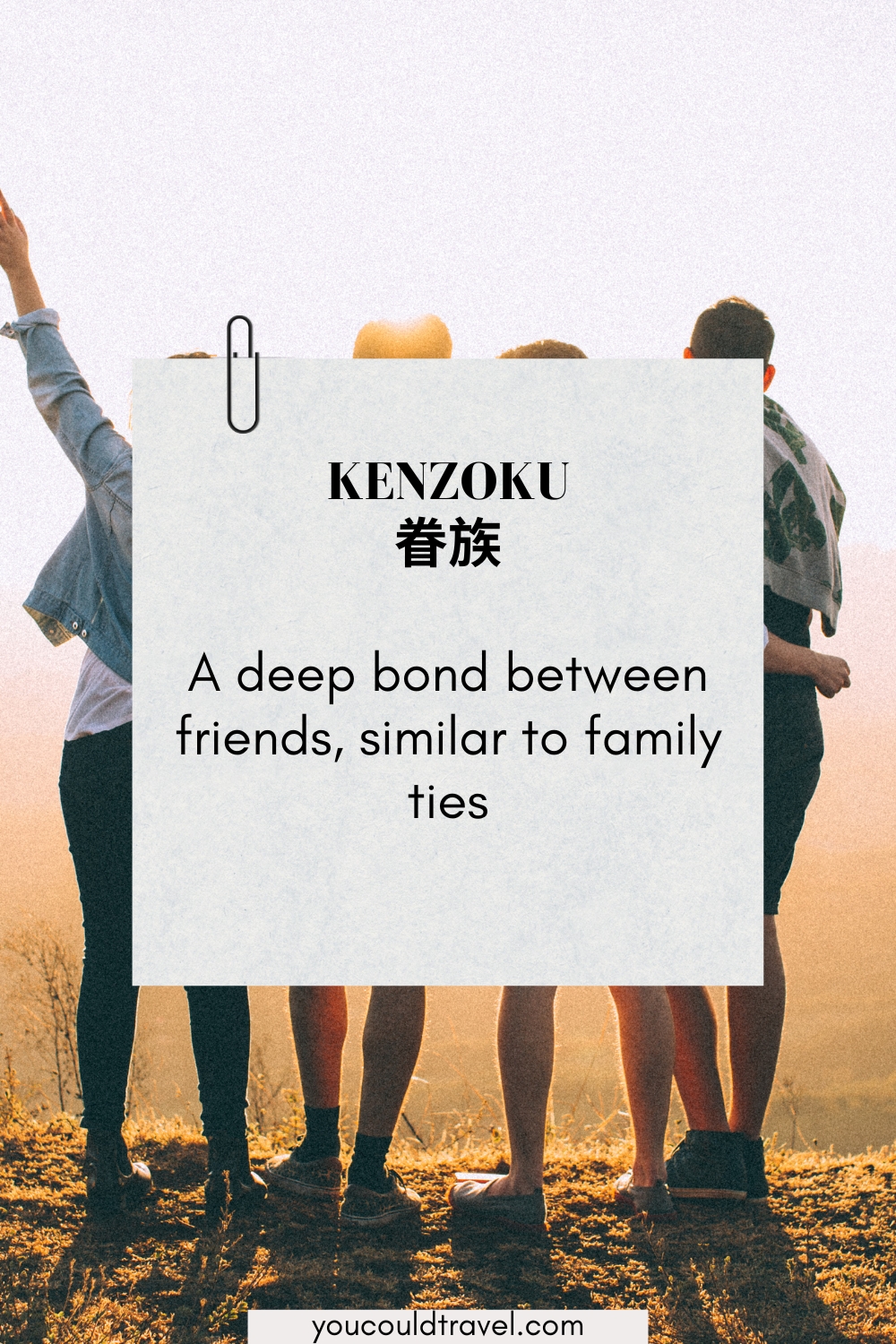
Kenzoku is a beautiful Japanese word that, translated literally, it means family, but it goes beyond the typical sense of family as being connected by blood or marriage. Kenzoku is used to denote a bond between people who have made a similar commitment and share a similar destiny. It could be used to describe the connection between close friends, comrades, or a group of people who share a deep, unspoken understanding and often a common goal.
In the context of Buddhism, Kenzoku also refers to all the beings with whom we share a karmic connection.
If you have people in your life who feel like family, not because you share the same blood, but because of shared experiences, mutual respect, and unwavering support, then you’ve found your Kenzoku. It’s a term that truly captures the profound bonds we form throughout our lives, reminding us of the importance of these connections.
Itadakimasu (頂きます)
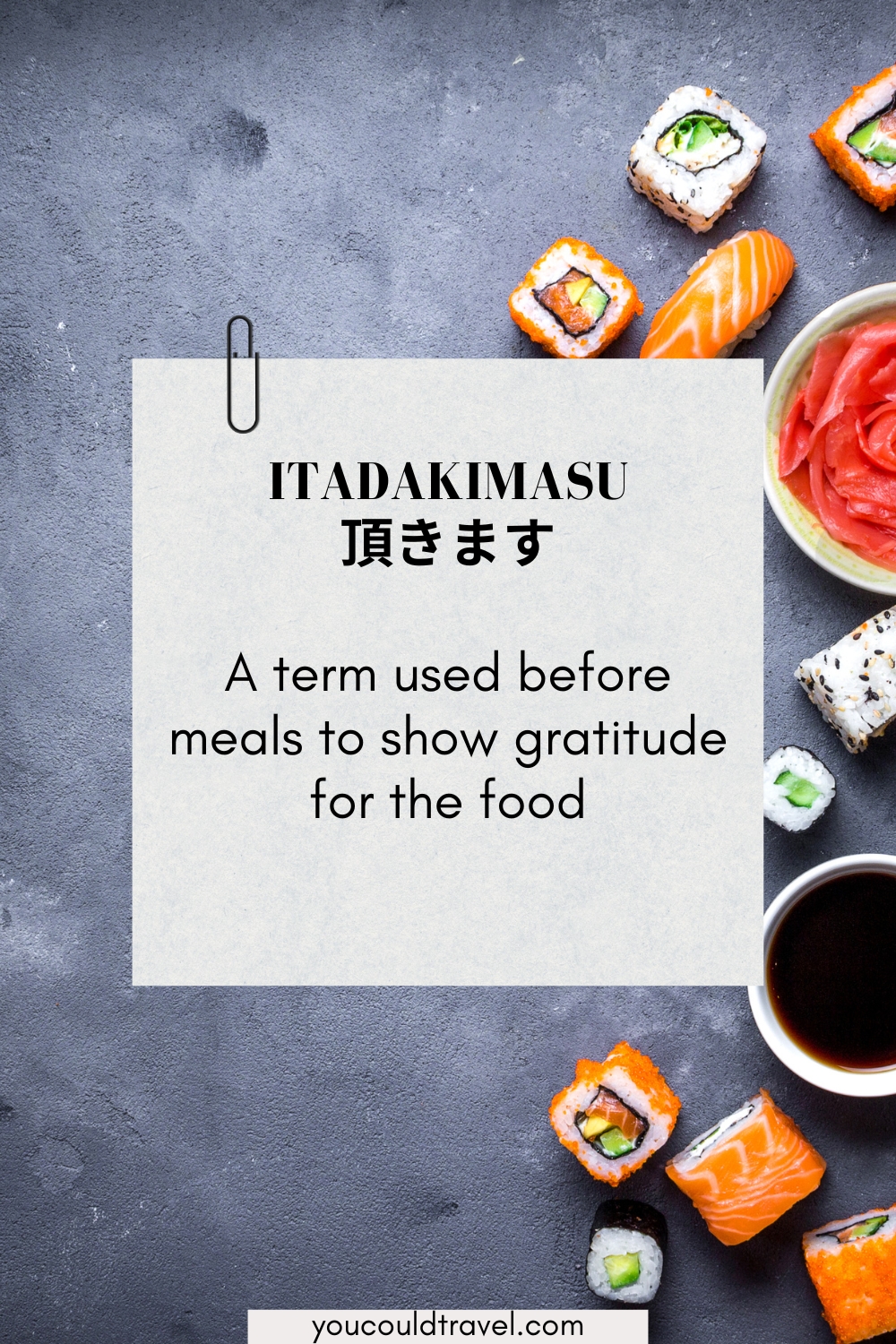
Itadakimasu is a common phrase in Japan used before meals, similar to saying Let’s eat or Bon appétit in English and French.
Literally, Itadakimasu translates to I humbly receive, but its intended meaning goes beyond this literal translation. When saying Itadakimasu, people express gratitude for all the efforts involved in preparing the meal – from the living things that gave their lives to the farmers, fishers, and hunters who harvested the ingredients, to the cooks who prepared the food. It’s an acknowledgment of the cycle of life and an appreciation of the labour that went into the meal.
Next time you eat Japanese food in Japan, make sure to put your hands together in prayer and say, itadakimasu.
Karōshi (過労死)
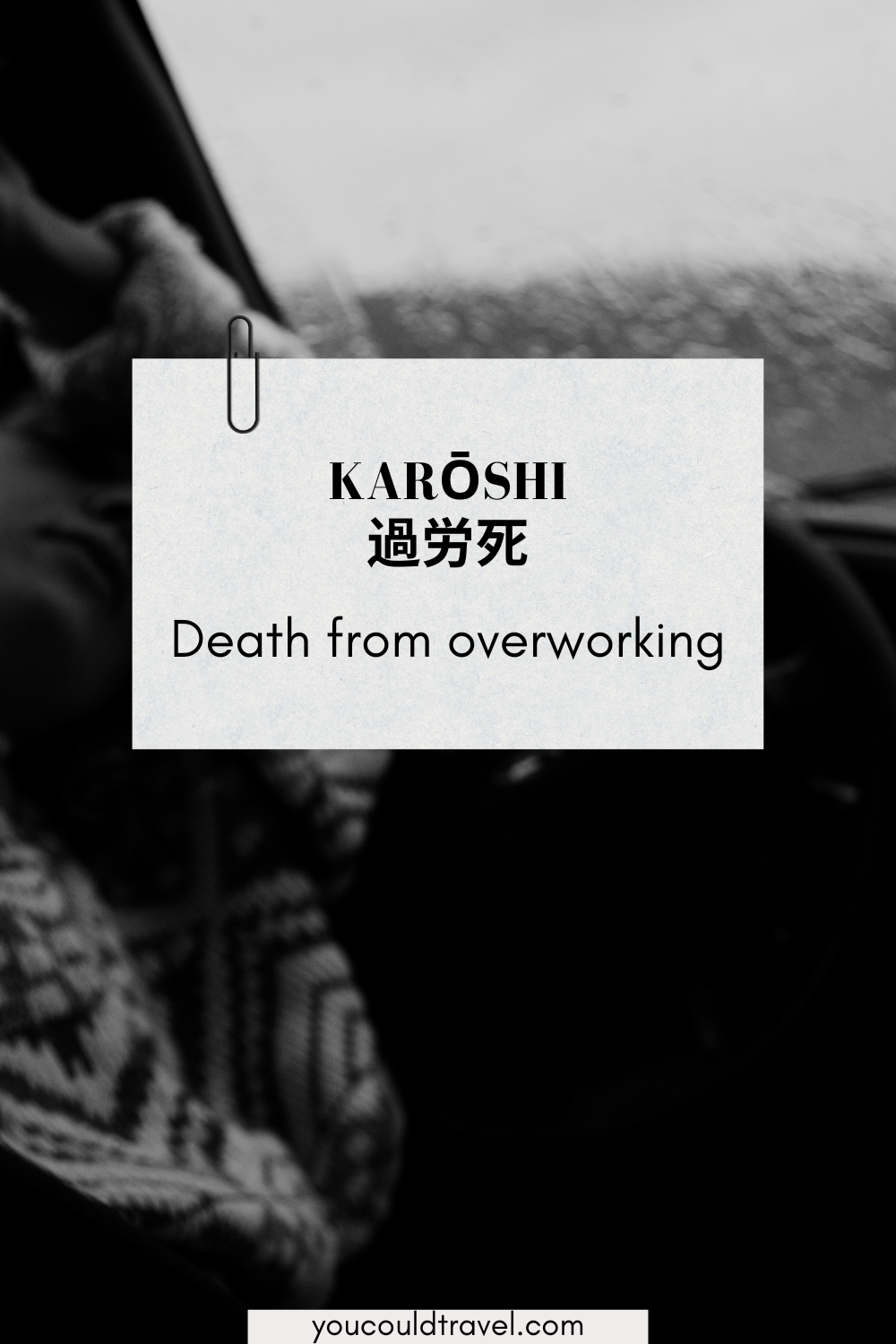
Karōshi is a sombre term that directly translates to death from overwork. It’s a societal issue deeply rooted in Japan’s work culture, often linked to long working hours, high levels of stress, lack of sleep, and insufficient rest.
The term was first coined in the 1980s during Japan’s era of economic prosperity when several high-profile cases of workers dying suddenly from stroke, heart attack, or suicide due to excessive work were reported. These incidents highlighted the dark side of Japan’s strong work ethic and led to a national discussion about the balance between work and life.
Shoganai (しょうがない)
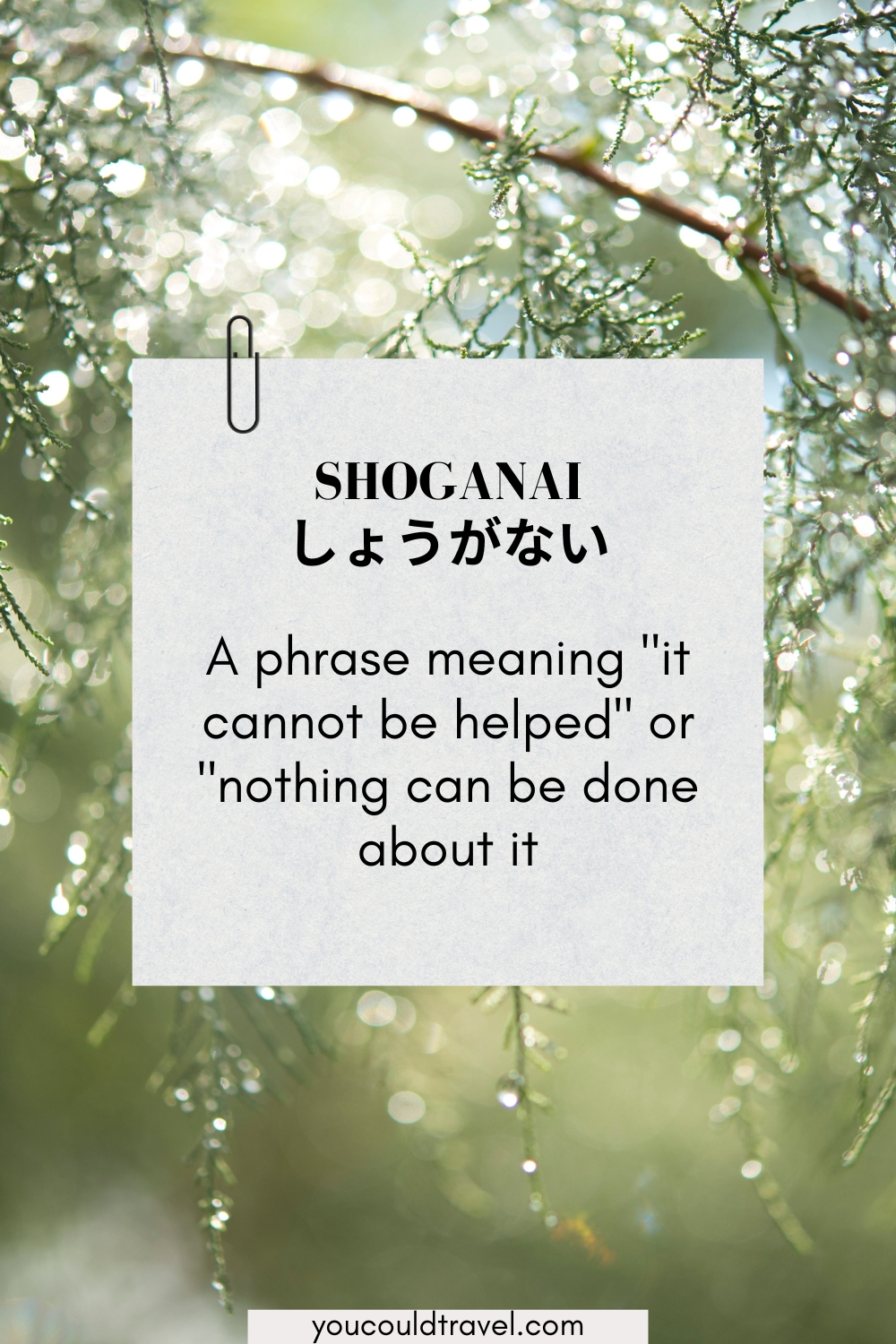
Shoganai is a common phrase in Japanese that literally translates to it cannot be helped or nothing can be done about it. Shoganai is typically used in situations where things didn’t go as planned or something unfortunate has happened. Instead of dwelling on the negative, the phrase encourages acceptance of the situation. It’s a way of acknowledging that some things are beyond our control, and it’s better to move forward rather than wallow in frustration or disappointment.
For example, if it rains on the day you planned a picnic, a Japanese person might say, Shoganai, we’ll have to reschedule, suggesting acceptance of the uncontrollable circumstance (the weather) and the need to adapt (reschedule the picnic).
Kuidaore (食い倒れ)
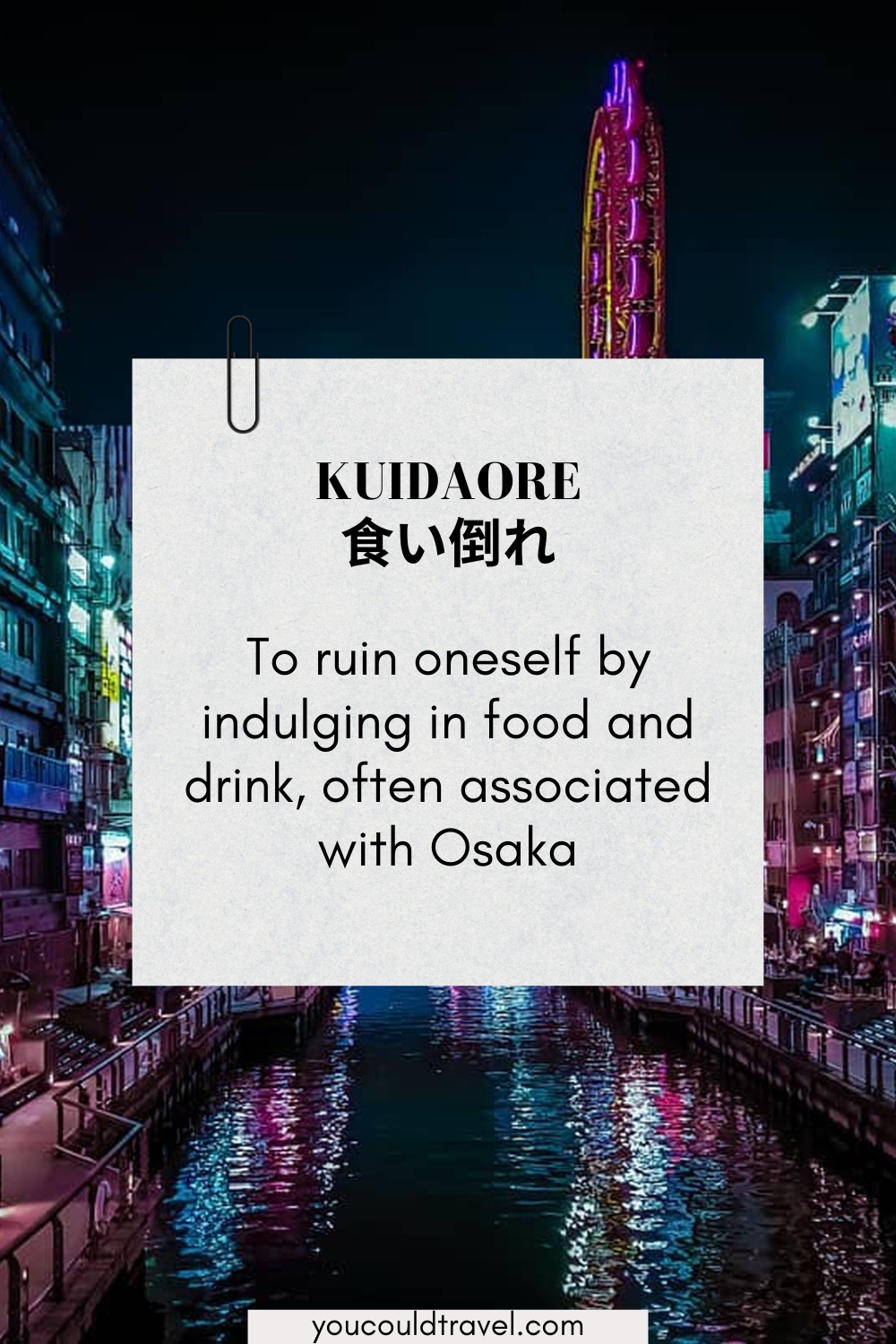
Kuidaore, a term associated with Osaka, can be translated to ruin oneself by extravagance in food and drink. It comes from a tradition in Osaka, a city famous for its food culture, where it’s said that people spend so much on food that they could potentially go broke.
However, rather than a literal downfall, kuidaore is usually used in a light-hearted manner to highlight Osaka’s love for good food and celebration of indulgence. Make sure to head to Dotonbori for some delicious street food, and you too will understand the term so well.
Satori (悟り)
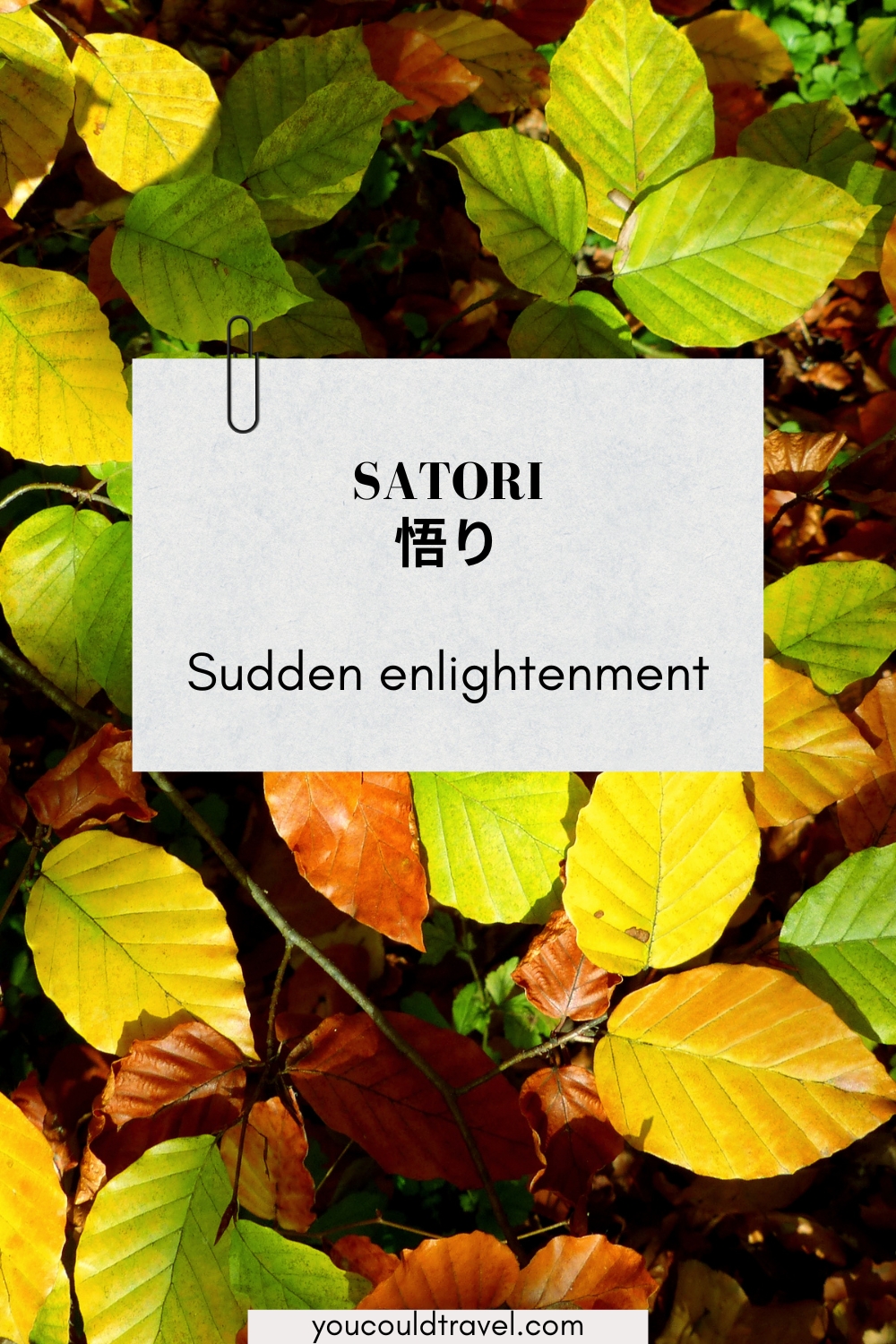
Satori, stemming from Zen Buddhism, refers to a sudden flash of enlightenment or awakening. It is the experience of realizing the profound truth of existence, where one sees the nature of their own mind clearly.
Once you achieve Satori, you need to cultivate your thoughts and experiences to further bring it all into maturation. This can be done through a lot of meditation.
Amae (甘え)
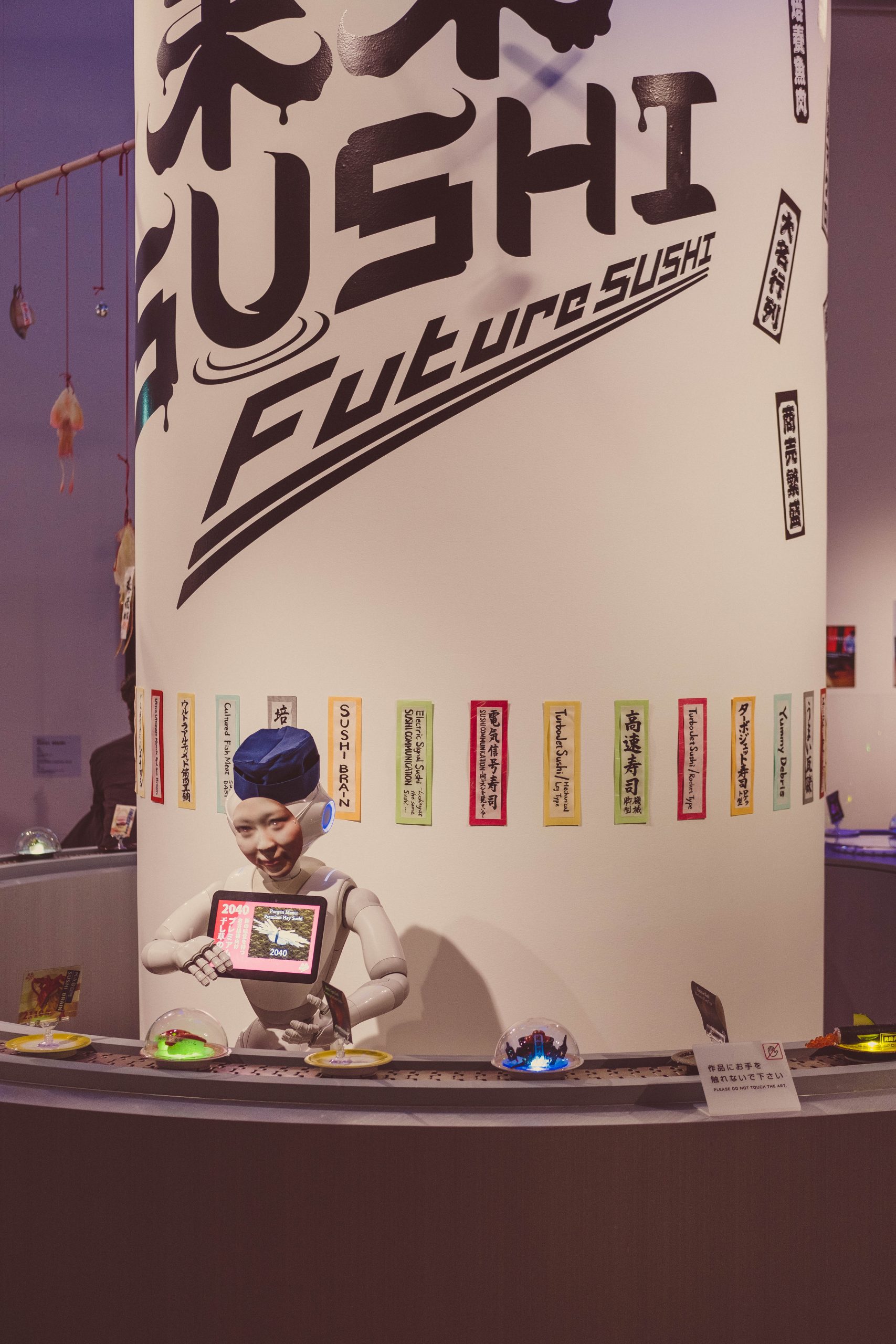
Amae is a term used to describe a deep and inherent aspect of Japanese social relations. It encompasses the behaviour of a person who is helplessly dependent on, and seeks to induce indulgence in, another.
Amae is about the feeling of helplessly depending on another person and seeking that person’s indulgence. It’s often seen in the behavior of children who act in a childish or dependent way to receive love and care from their parents. This behavior, however, can also be seen among adults, especially in close relationships where there is a deep level of comfort and trust.
Kotodama (言霊)
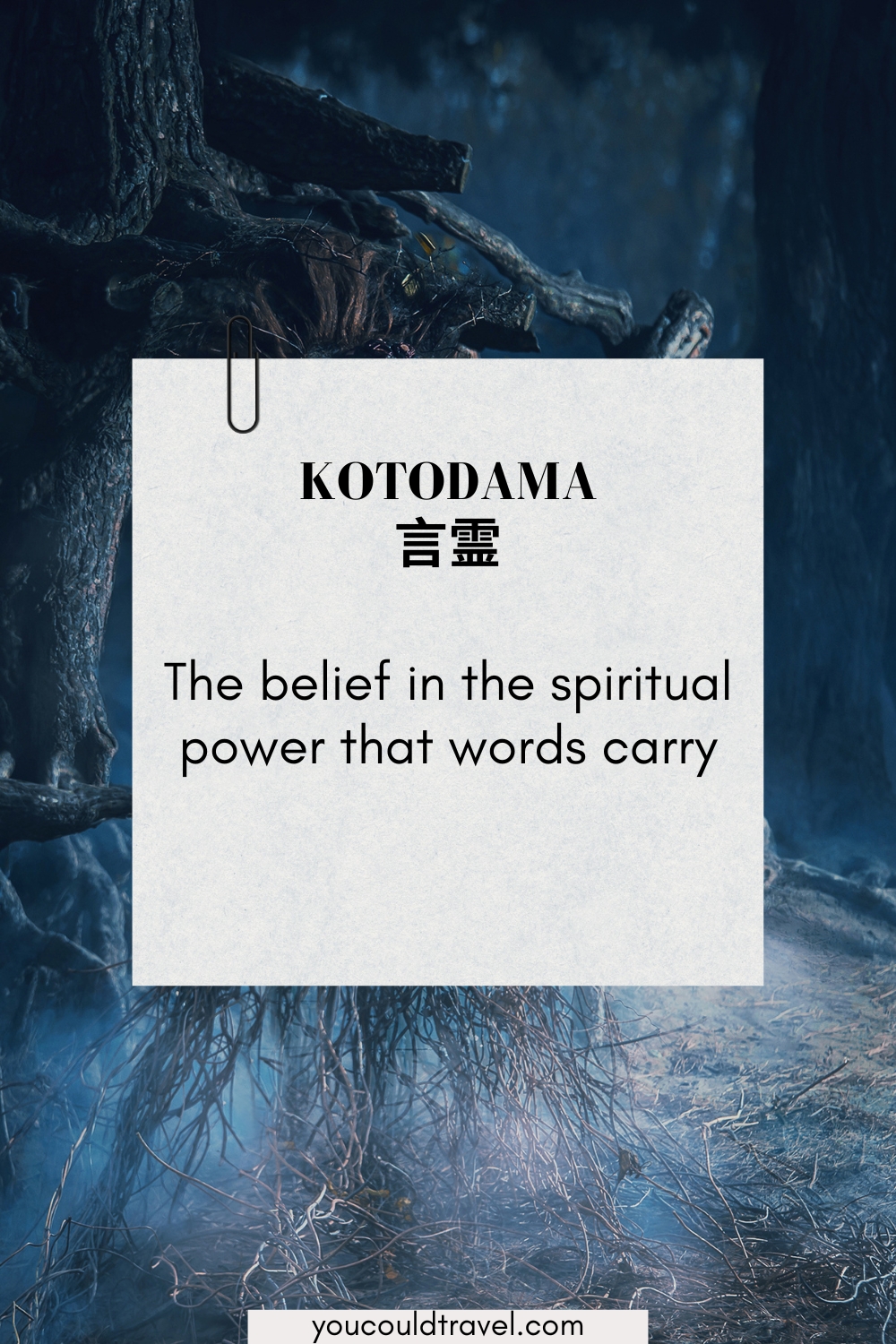
Kotodama refers to the ancient belief in the spiritual power of words. It implies that words carry their own energy or ‘spirit,’ and by using them properly, one can influence reality. This belief is deeply ingrained in Japanese culture and can be seen in practices like avoiding negative speech or in the importance placed on certain words in ceremonies and rituals.
It’s very similar to the concept of manifestation. When you create wish boards and daydream about bringing positive outcomes into your future.
Furusato (ふるさと)
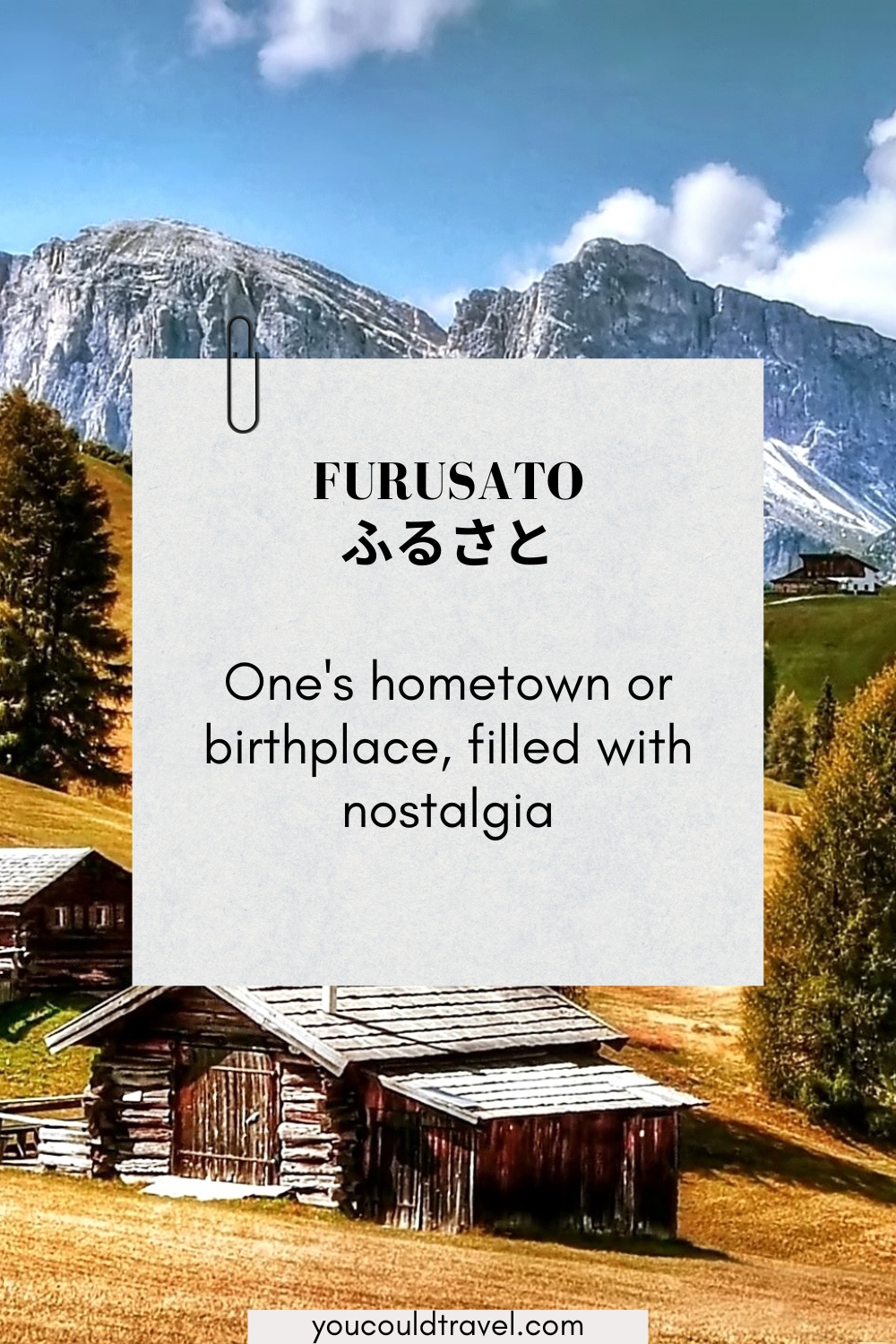
Furusato is a term that literally means ‘old village’ and is used to refer to one’s hometown or birthplace. But you’ve probably guessed it, this Japanese word goes beyond geographical boundaries; furusato carries a sense of nostalgia and sentiment, invoking a feeling of belonging and longing for the days of one’s youth and the warmth of a hometown.
It’s like the place which fills your soul with nostalgia when you’re thinking about it.
Omoiyari (思いやり)
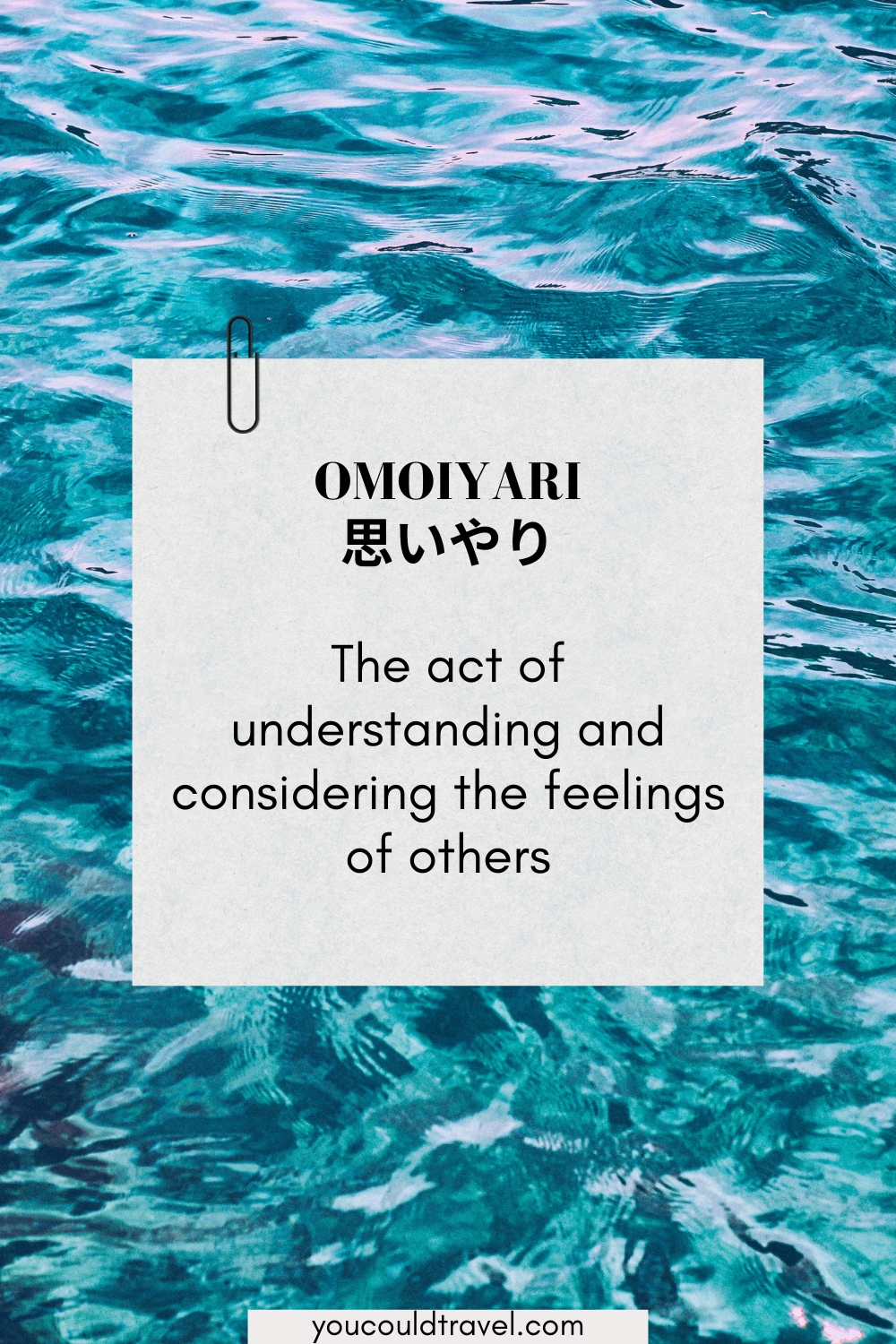
Omoiyari translates to thoughtfulness or consideration for others. It reflects a sense of empathy, understanding, and consideration towards the feelings and needs of others. It encourages thinking from others’ perspectives, showing kindness and respect, and promoting harmonious relationships.
Omoiyari captures the essence of social harmony and mutual respect, central to many aspects of Japanese society. It focuses less on individuality and more on the common good for everyone.
Shinrin-yoku (森林浴)
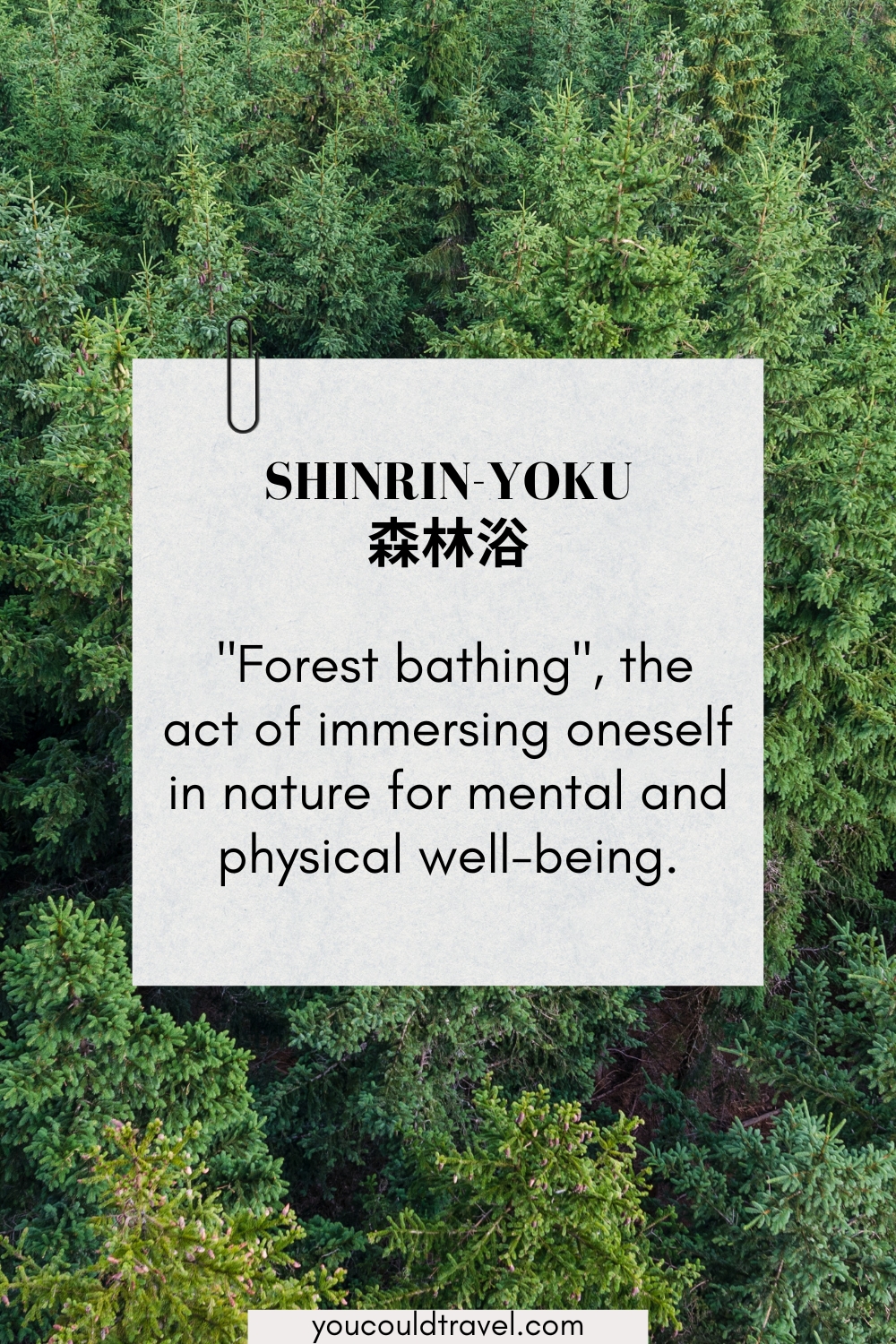
This is one of my favourite Japanese words out there because Shinrin-yoku translates literally to forest bathing. It’s a term that captures a practice deeply rooted in Japanese culture, centring on the therapeutic and calming effects of spending time in nature, particularly in a forest environment.
The idea behind shinrin-yoku is to soak in the atmosphere of the forest, allowing it to cleanse the mind and body. It’s not about strenuous physical activity, like hiking or exercising; instead, it’s about simply being in nature, connecting with it through our senses of sight, hearing, taste, smell, and touch. You can almost smell the pines as you’re reading this, right?
Setsunai (せつない)
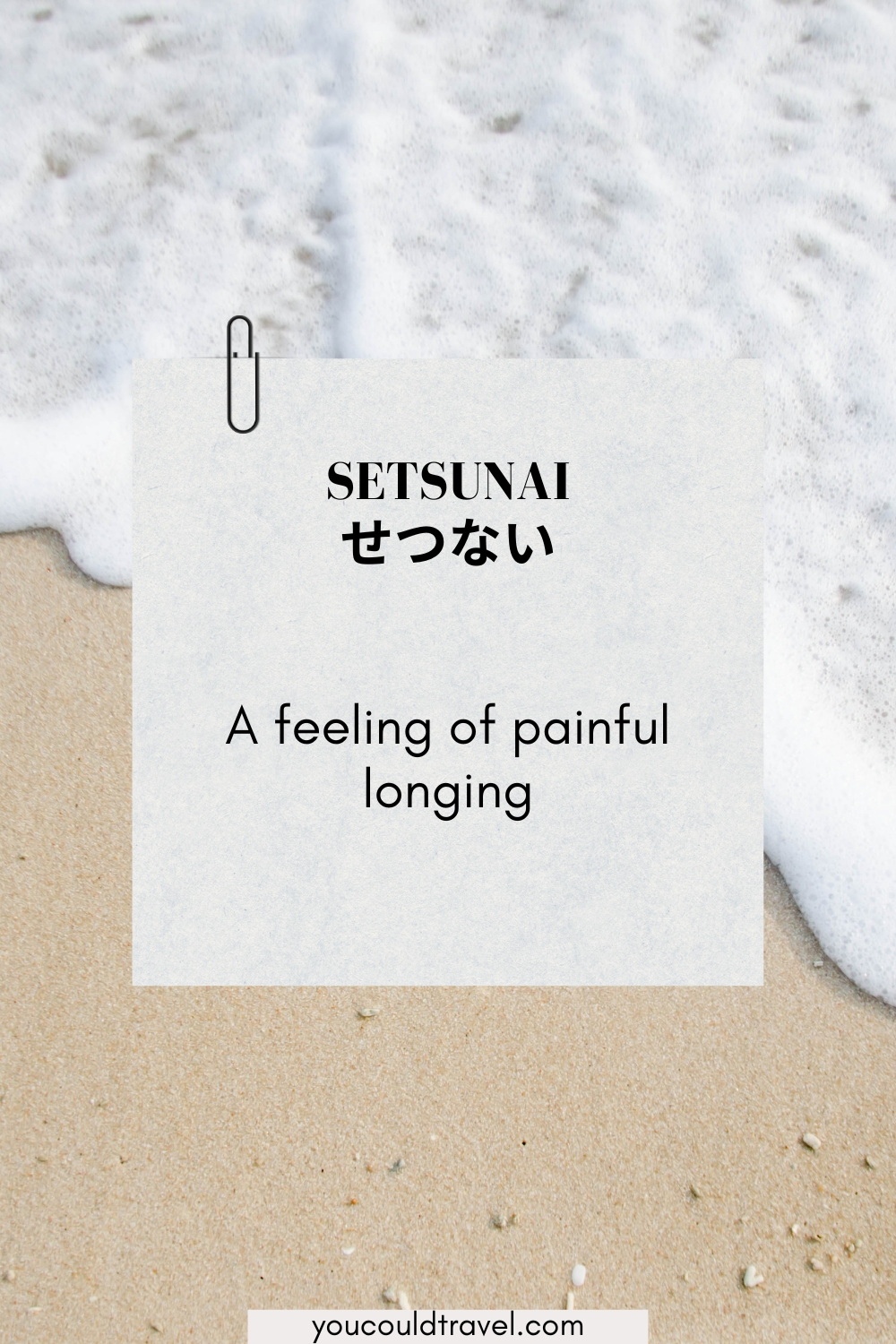
Setsunai is a Japanese word that describes a certain kind of bittersweet pain, often related to longing or nostalgia. It’s a complex emotion that combines elements of sadness, longing, and a deep sense of melancholy. It could be the feeling you get when you miss someone you love, the melancholy that comes with an unfulfilled desire, or the poignant sadness in yearning for something that’s lost.
Unlike outright sorrow or despair, setsunai has a delicate, almost romantic quality to it. It’s the kind of feeling that hurts, yet is somehow beautiful—like a sad song that moves you or a memory of a lost love that still tugs at your heart.
Yamato-damashii (大和魂)
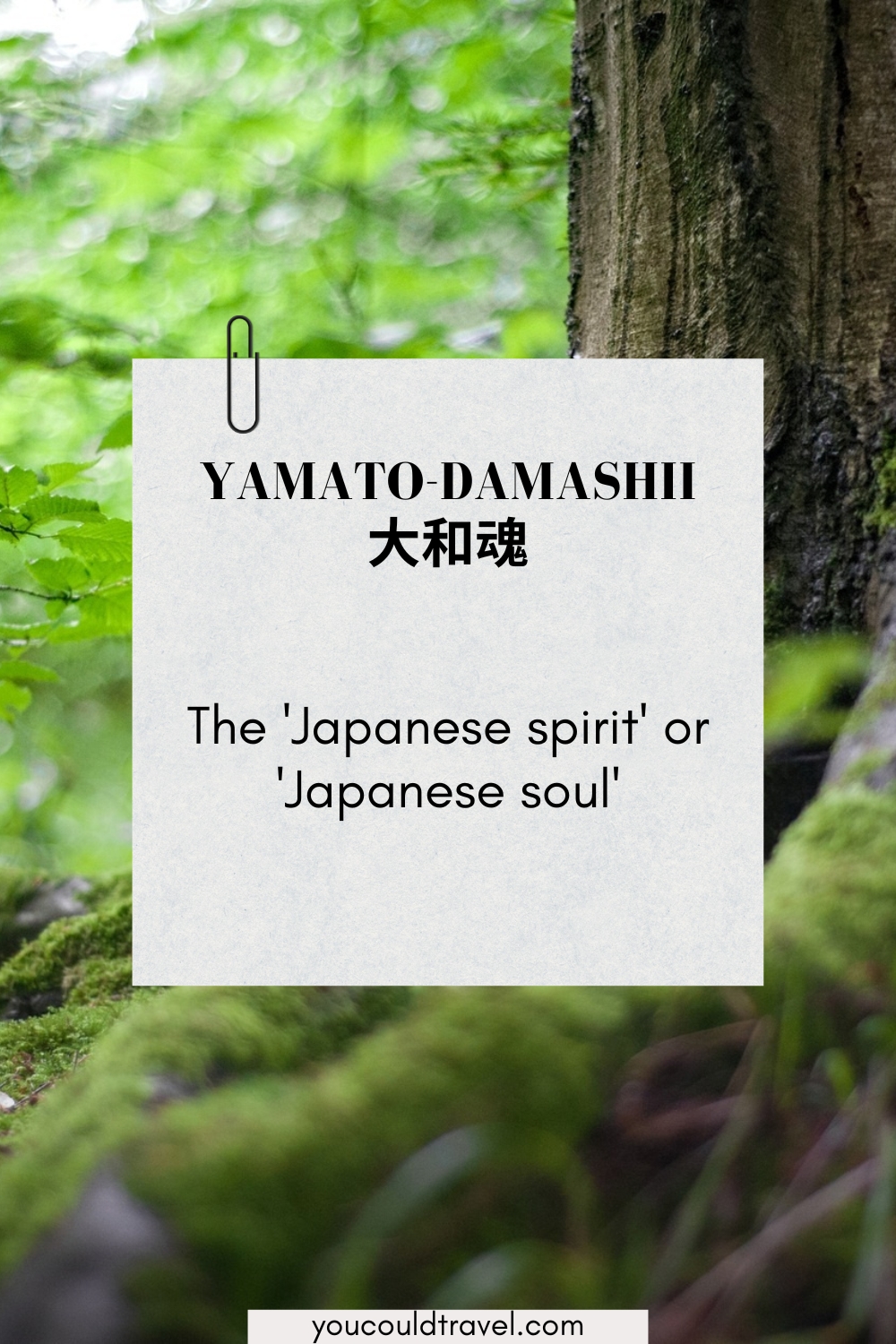
Yamato-damashii translates to Japanese spirit or Japanese soul, and it refers to the values such as bravery, loyalty, honour, and self-sacrifice, often associated with the samurai warrior class.
The term reflects a sense of collective identity and national pride, capturing the essence of what it means to be Japanese.
Ichi-go ichi-e (一期一会)
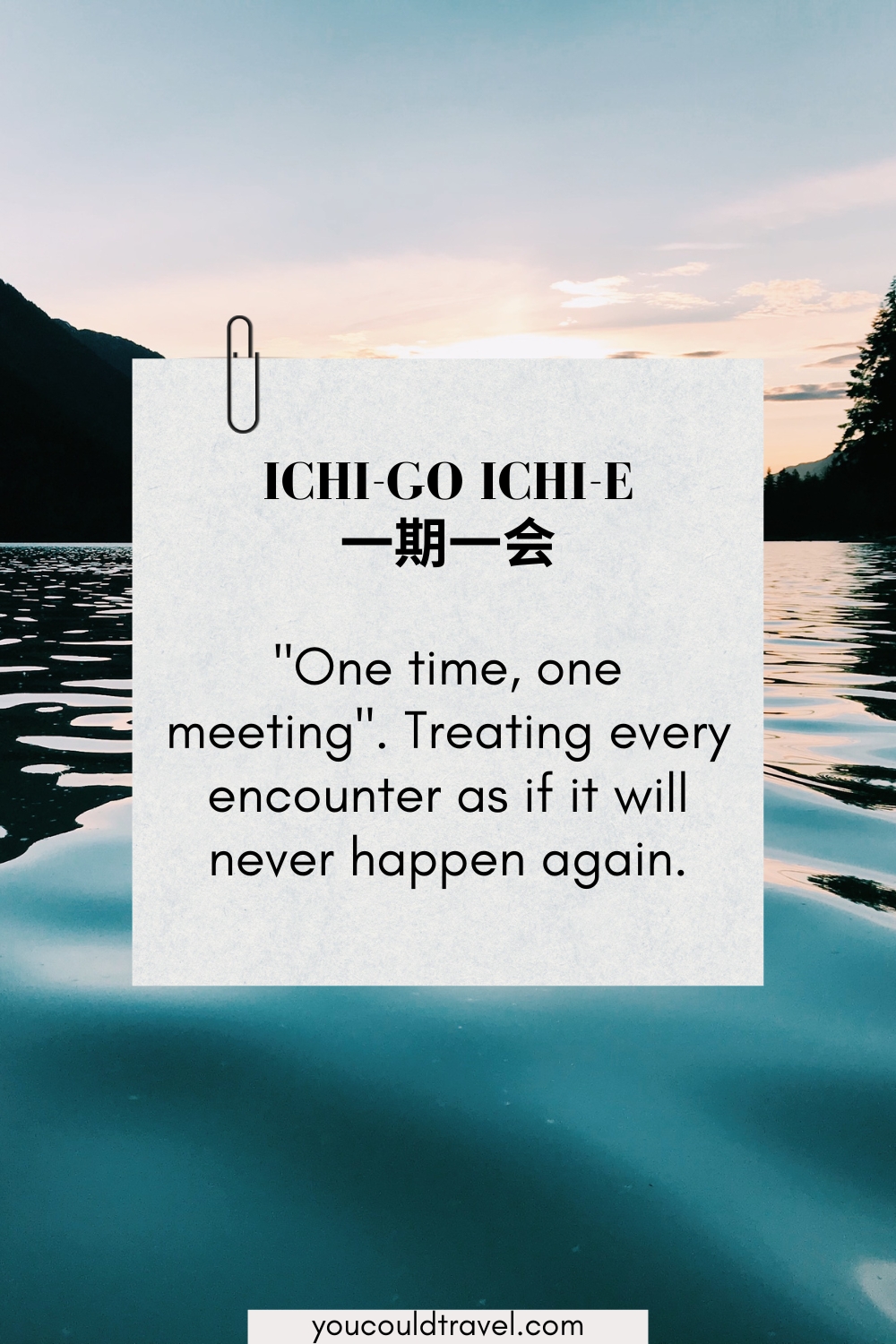
Ichi-go ichi-e is a classic Japanese phrase that translates literally to one time, one meeting. The concept is infused with philosophical and cultural significance, often associated with the old-school tea ceremony, but it’s equally applicable to any gathering or experience.
The concept behind ichi-go ichi-e is that every encounter is unique and can never be replicated exactly. Each meeting, even with the same person or people, happens only once in a lifetime. It encourages mindfulness and full engagement in each moment, emphasizing the beauty and value of each encounter in its singularity.
Genki (元気)
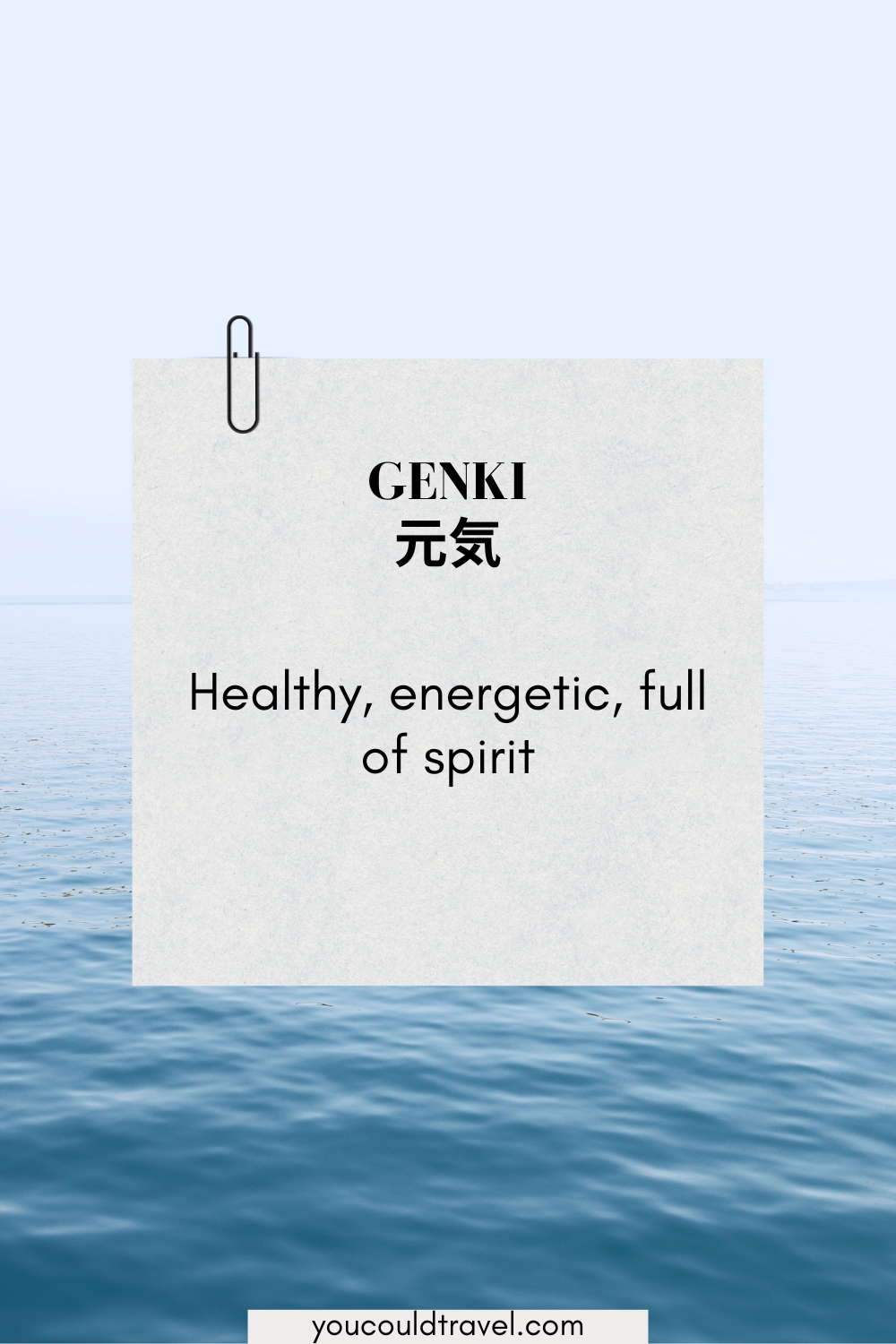
Genki is a commonly used word in Japan, often heard in greetings and casual conversations. More than a word, it’s a concept that signifies vitality, energy, and health. When someone asks Genki desu ka, they’re inquiring about your well-being, similar to How are you?. Responding with Genki desu implies you’re in good health and high spirits.
Kizuna (絆)
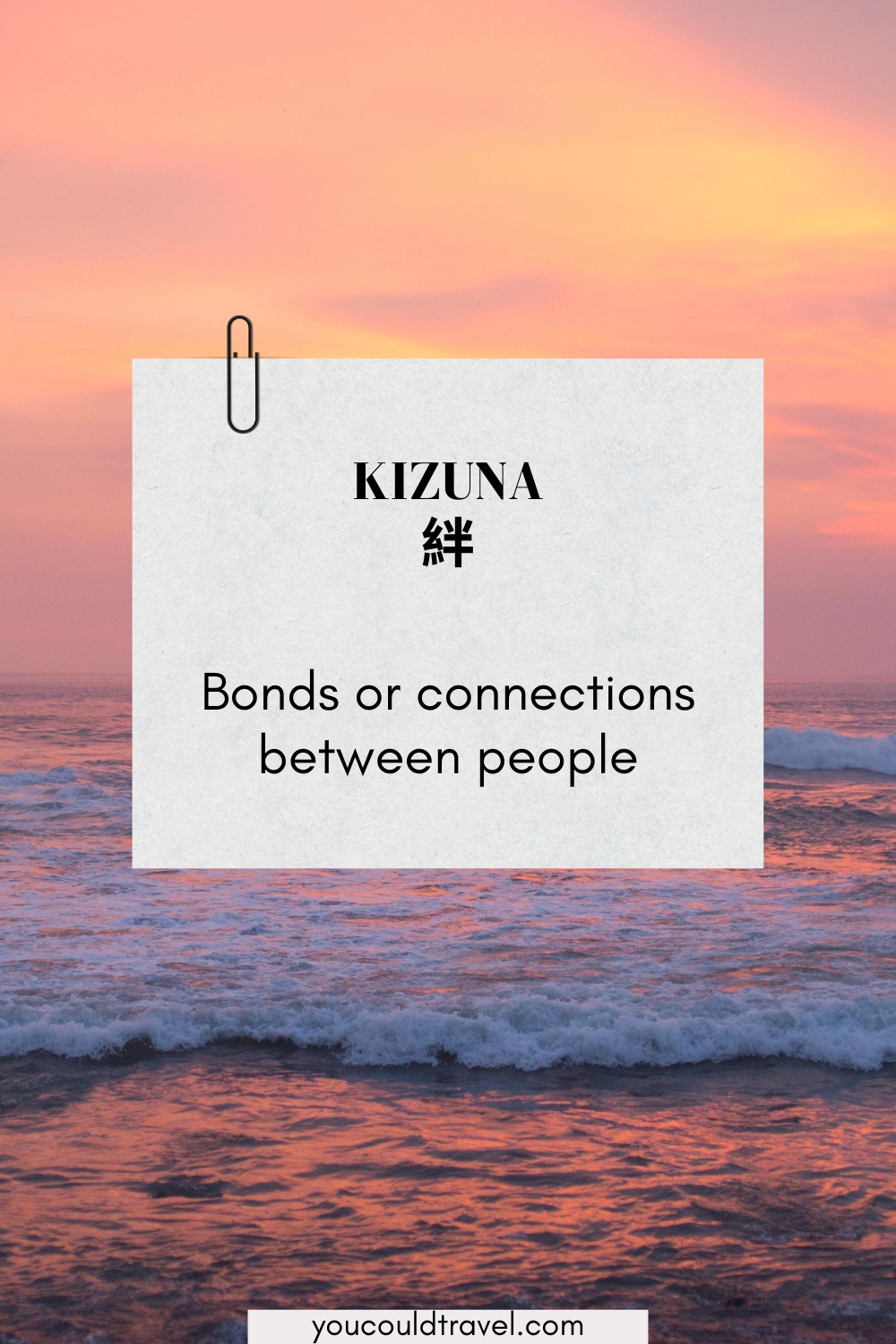
Kizuna is a Japanese word that hits close to the heart of the Japanese people. It’s all about bonds and connections. But we’re not just talking about any old ties here. Kizuna represents those deep, emotional connections you share with your family, your closest pals, or your community. These relationships give you strength, lift you up, and help you keep going, even in tough times.
Think about the friendships that helped you through a tough time, or the family that always has your back. That’s your kizuna, right there! After the 2011 earthquake and tsunami in Japan, this term gained even more significance. It was kizuna that helped communities band together, recover, and rebuild. So, in a nutshell, kizuna celebrates the beauty and strength of human connection. It’s a reminder that we’re all in this together, interconnected and interdependent. And isn’t that a wonderful thought?
Ganbatte (頑張って)

Ganbatte is your best friend on the sidelines, cheering you on during those tough life marathons. It’s like the Japanese version of You can do it! or Keep going!. In Japan, you’ll hear this friendly shout of encouragement, pushing you to give your all, to hang in there, and never give up. It’s that little boost of energy when your spirits are flagging, a reminder that you’ve got this, and you’re stronger than any challenge that comes your way. So next time you need a pep talk, just remember – ganbatte!
Osusowake (お裾分け)
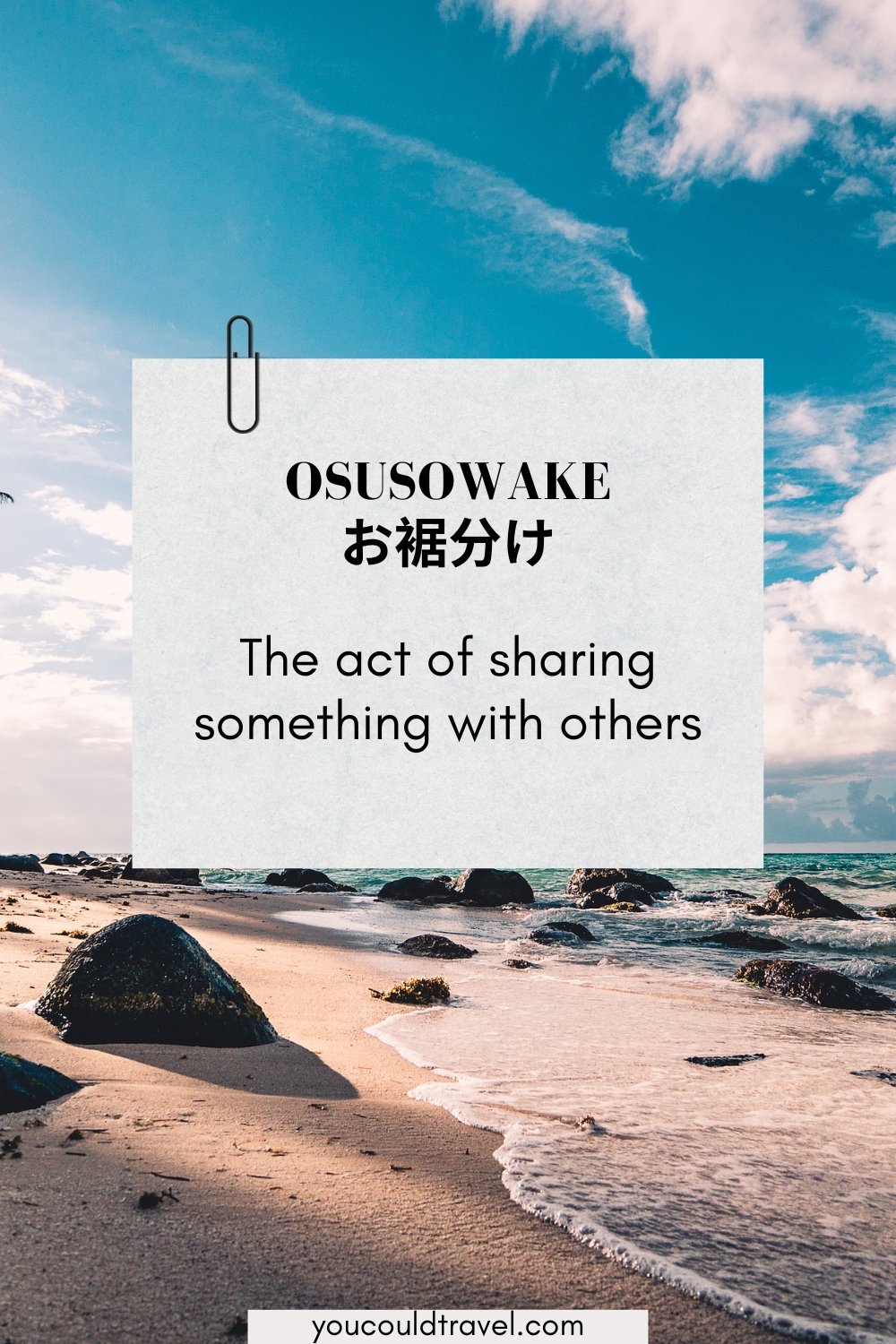
Osusowake is all about sharing the love. Picture this: you’ve baked an epic chocolate cake. It’s just too good (and too big!) to keep to yourself. What do you do? You share it with your friends, your neighbors, even that nice old lady from the apartment upstairs. That’s osusowake – the act of sharing something good with others. It’s a beautiful tradition that brings people closer and makes the world a little bit sweeter, one shared treat at a time.
Yutori (ゆとり)
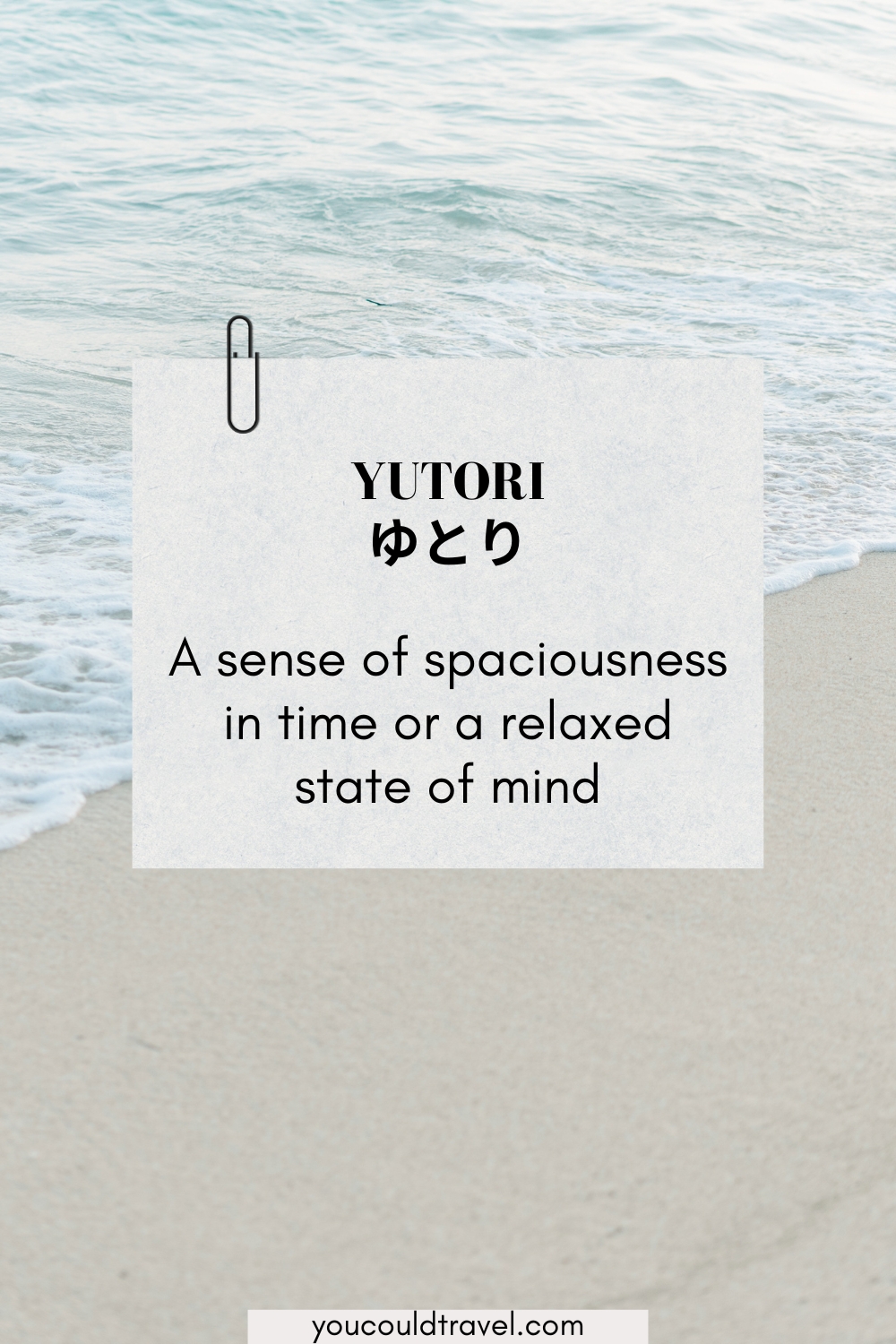
And now, let’s take a breath with Yutori. Yutori is that lovely feeling when you’re not rushing, not pushing, just…being. It’s that rare spaciousness where you can take a moment to yourself, breathe easy, and just enjoy the present. In a world that’s always hurrying, yutori is a gentle reminder to slow down and savor the calm. It’s about cherishing those quiet moments of relaxation, and who couldn’t use a bit more of that, right?

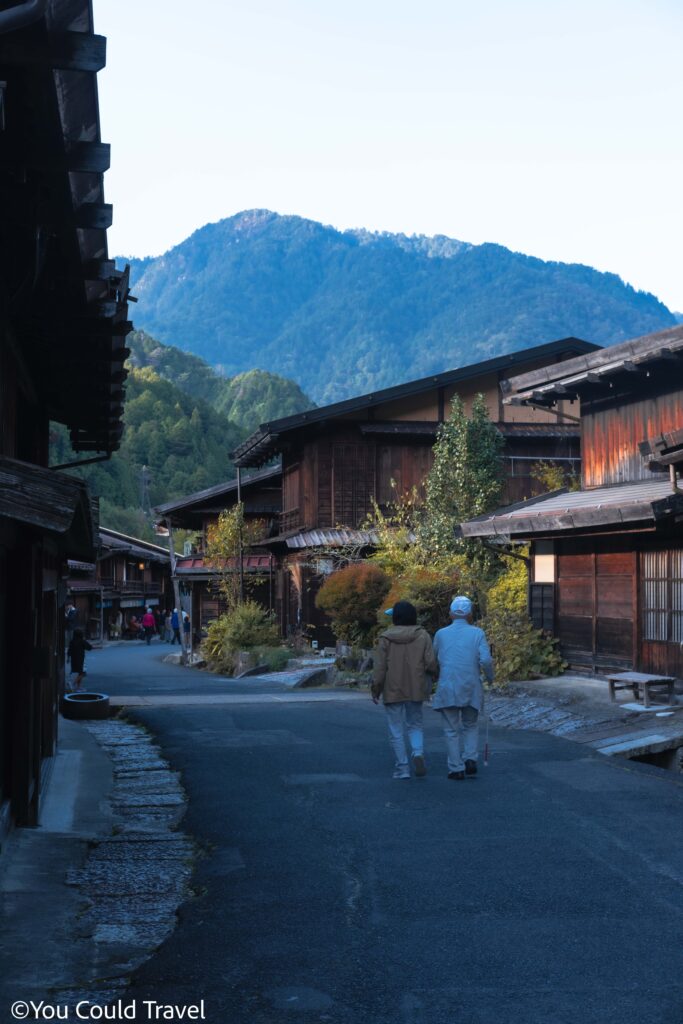


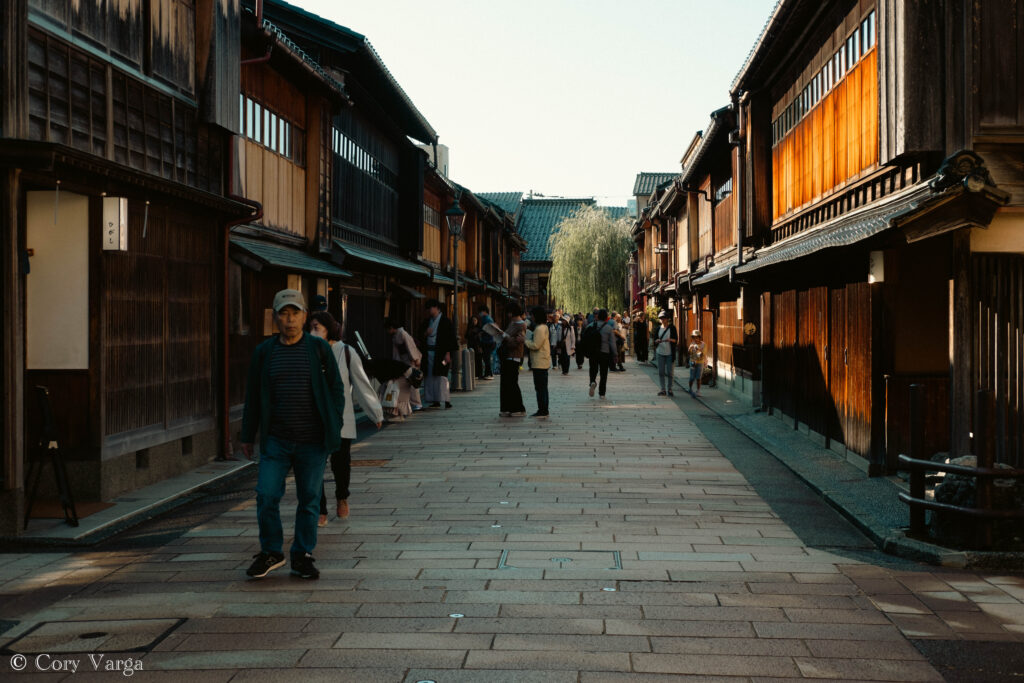
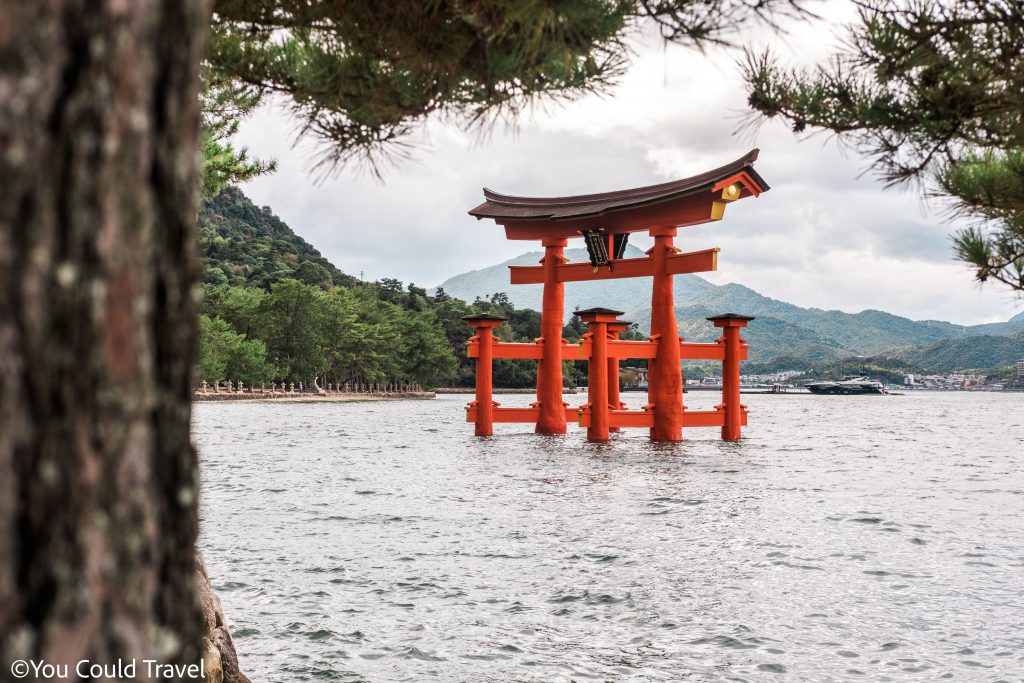
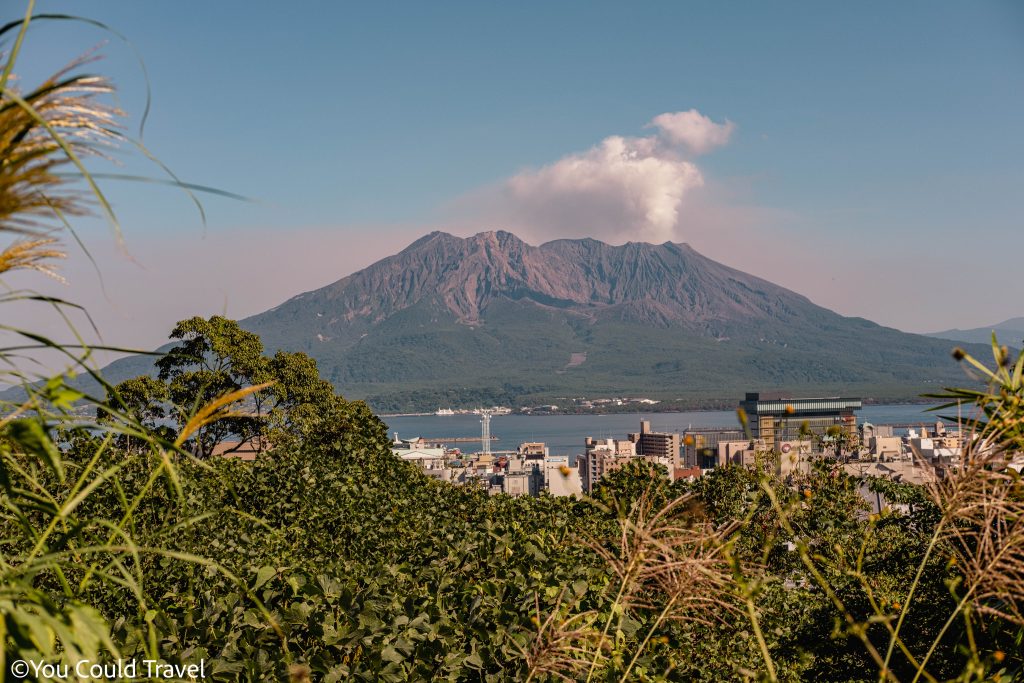
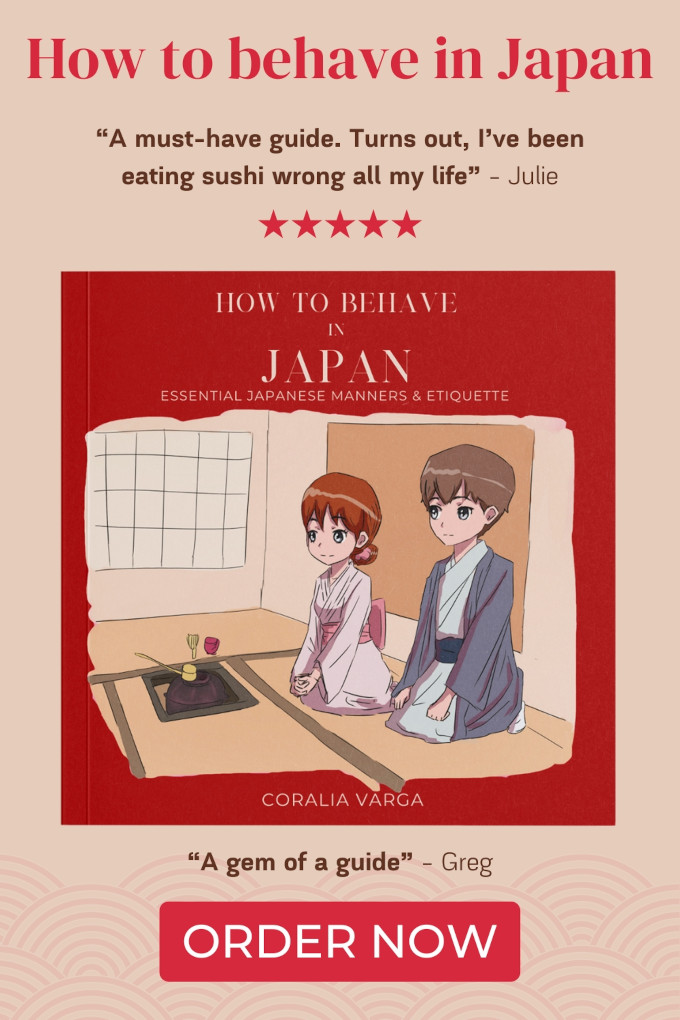

Leave a Reply